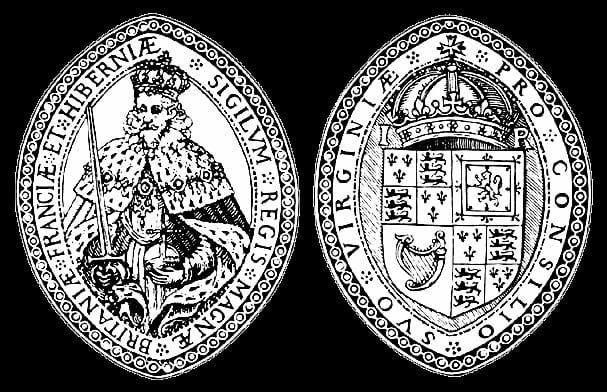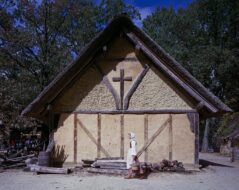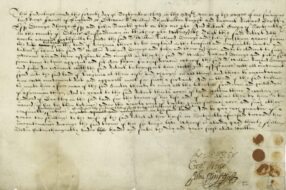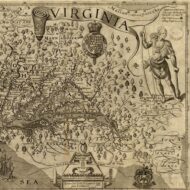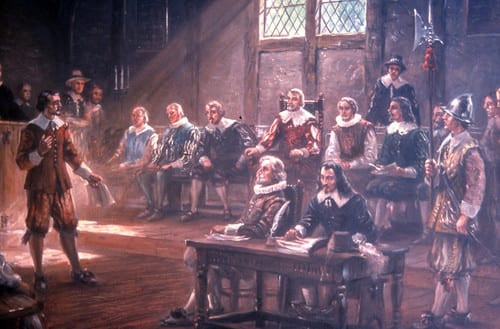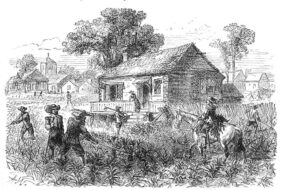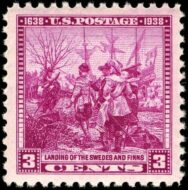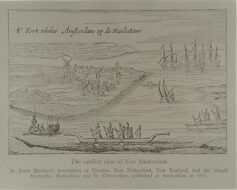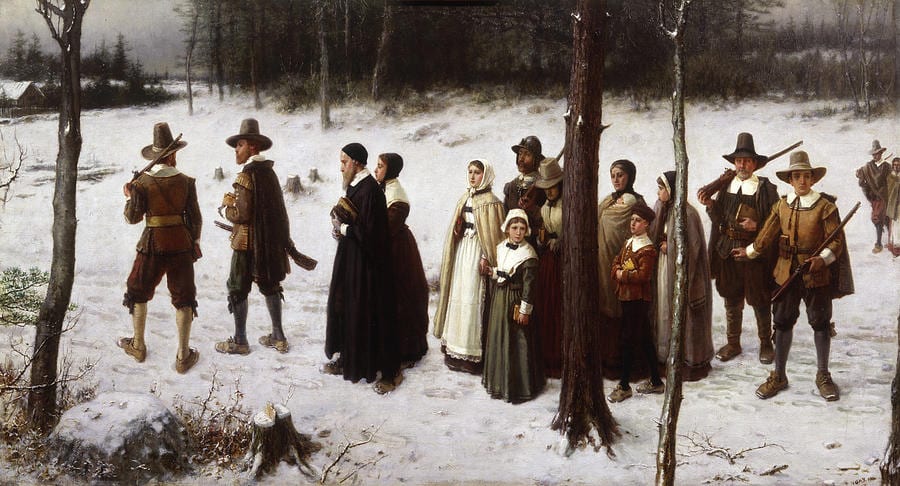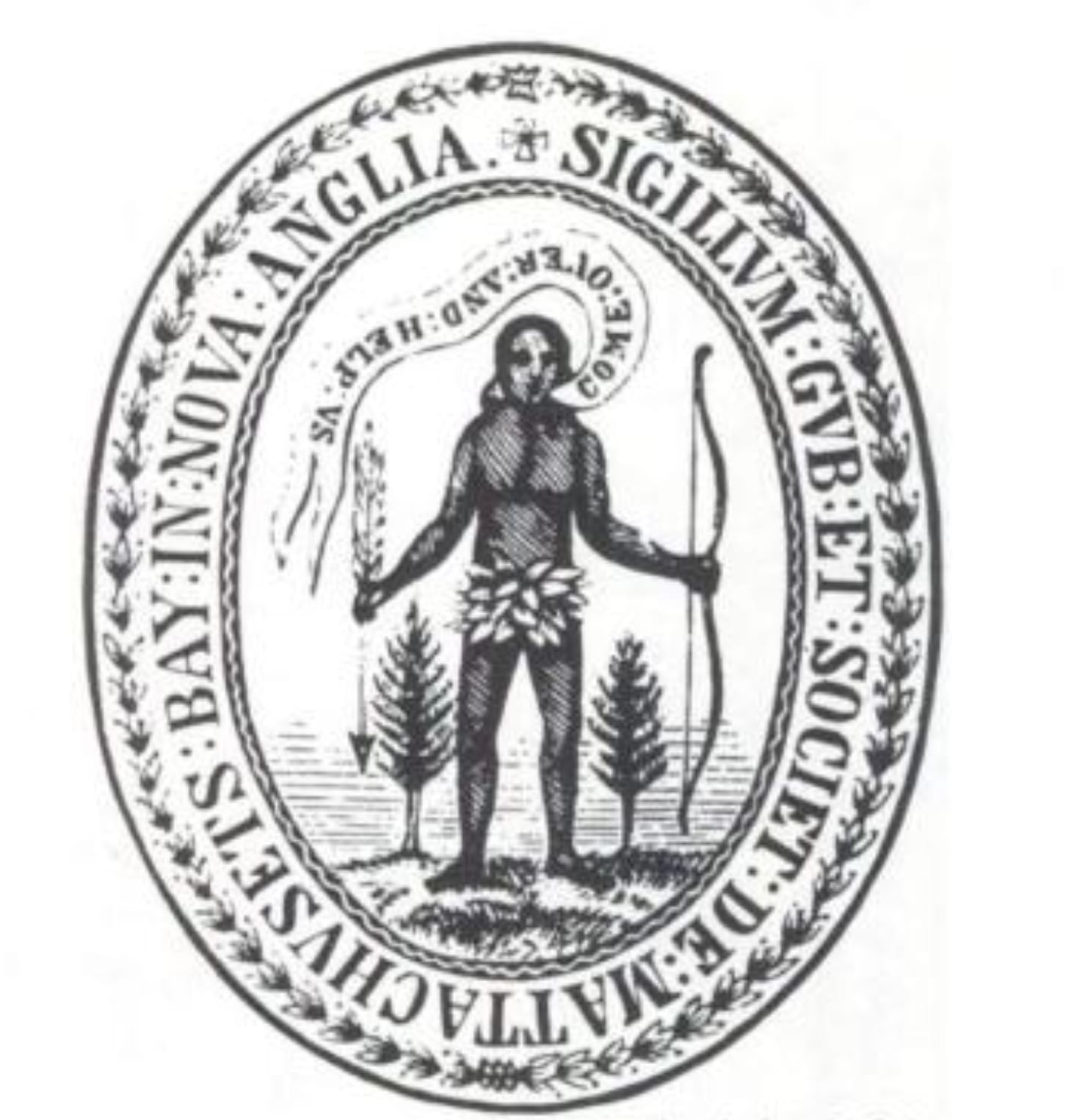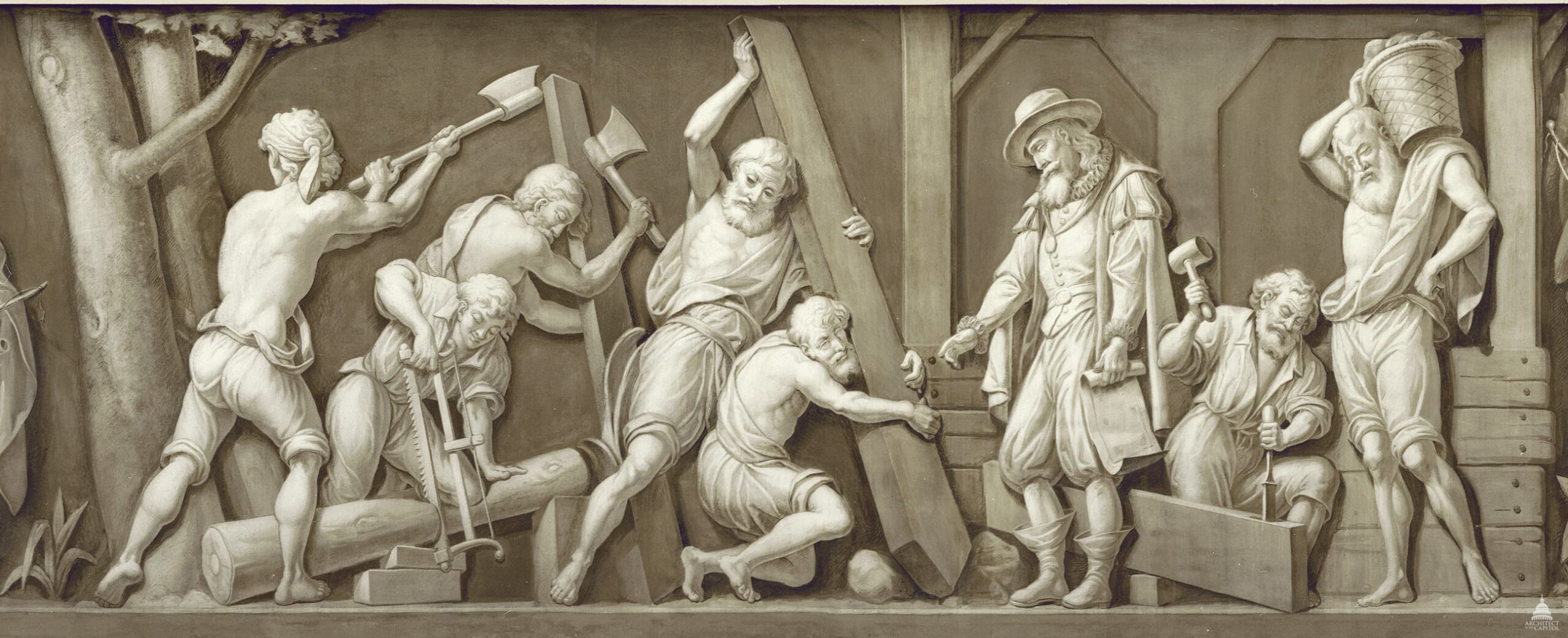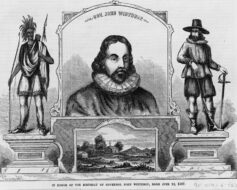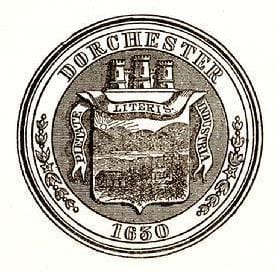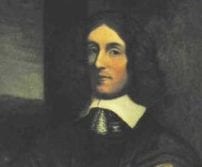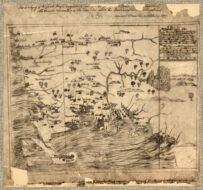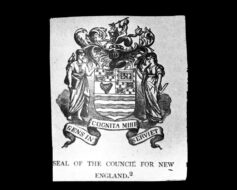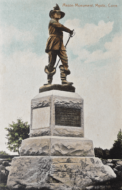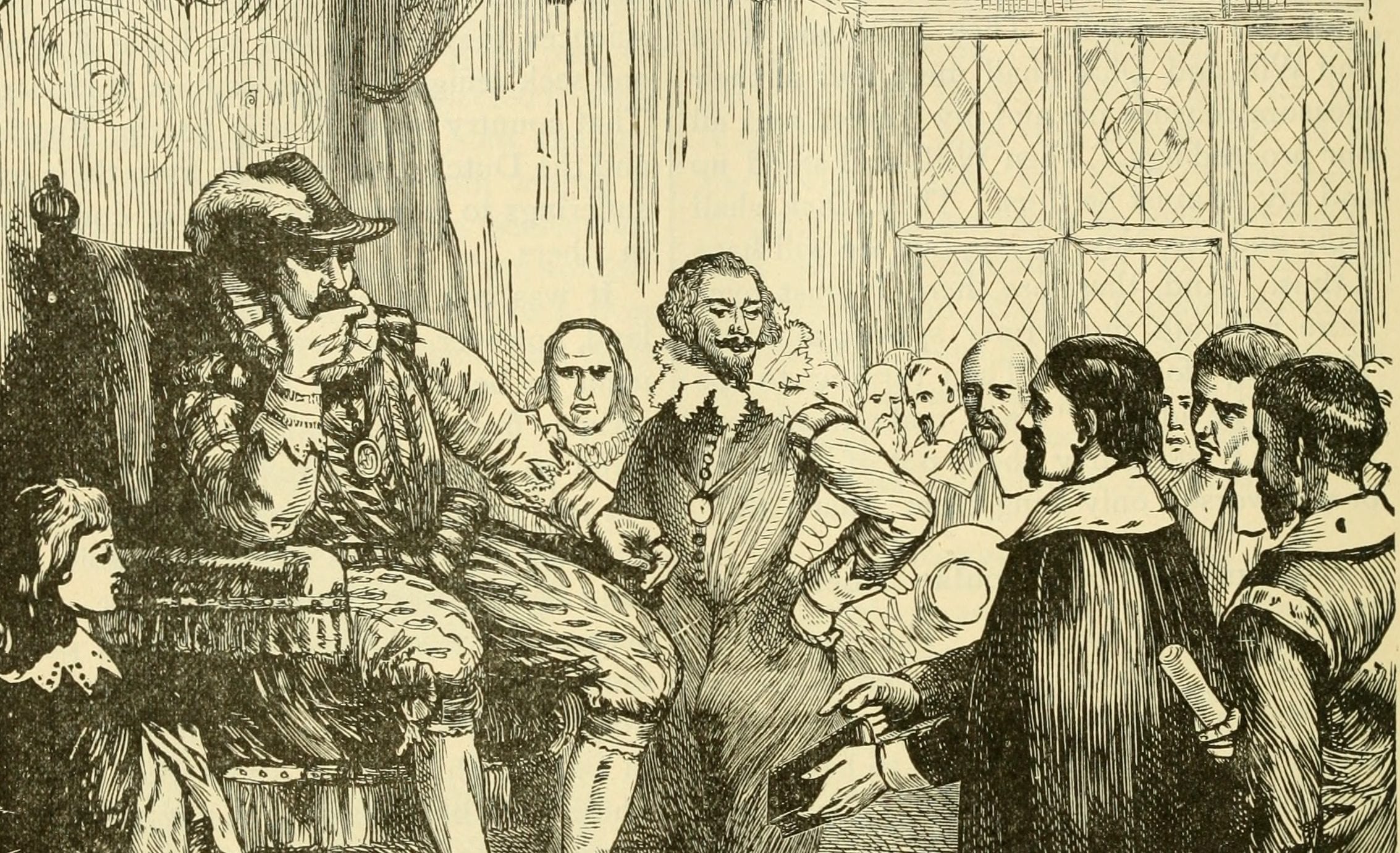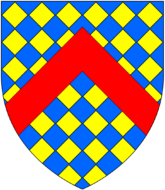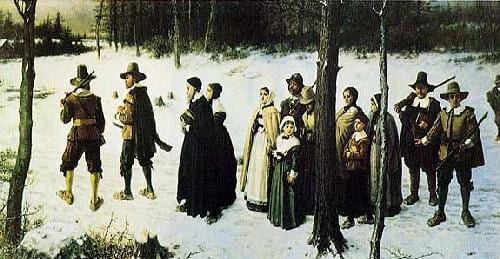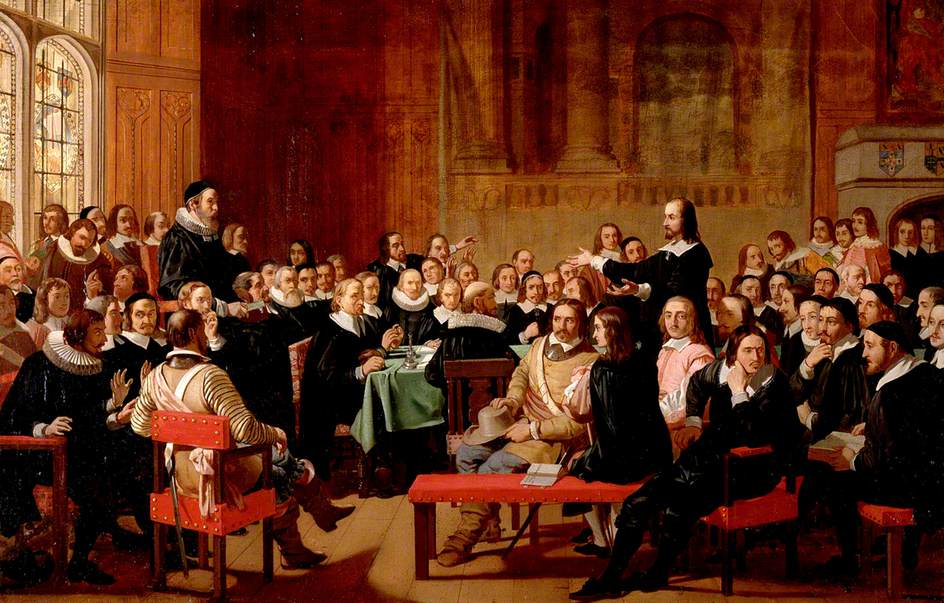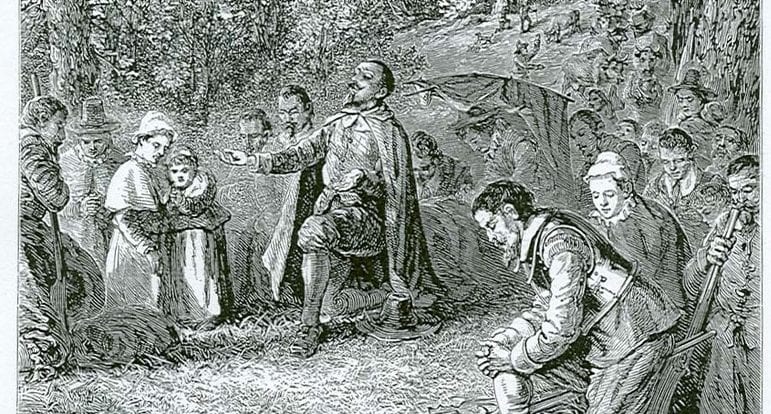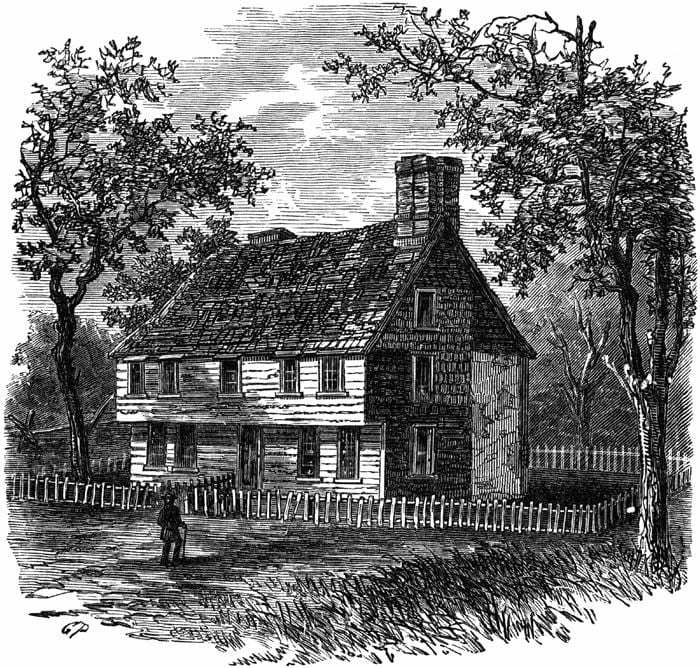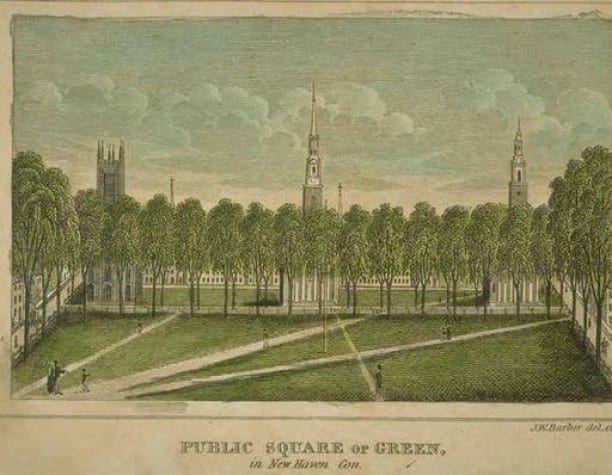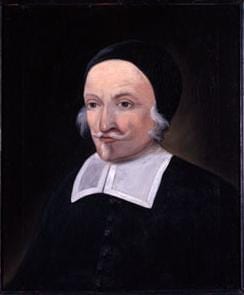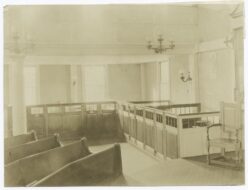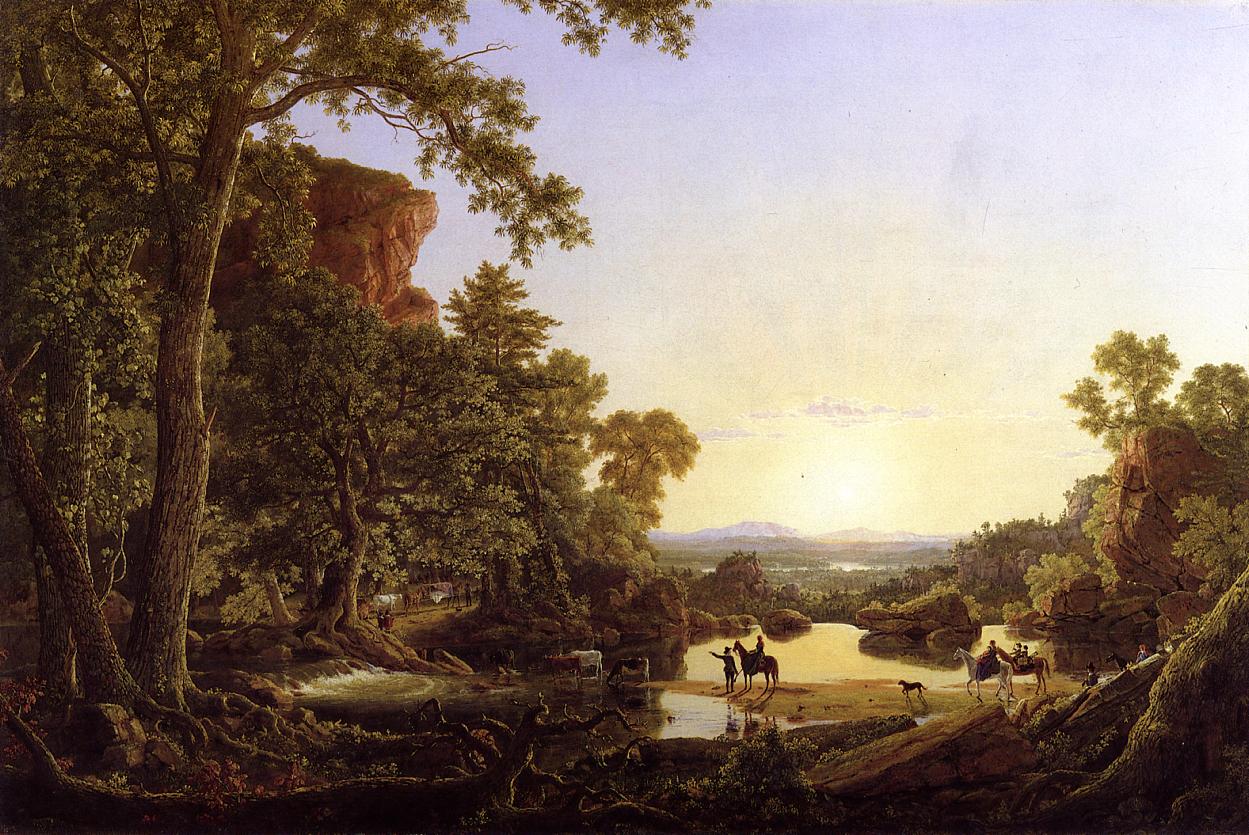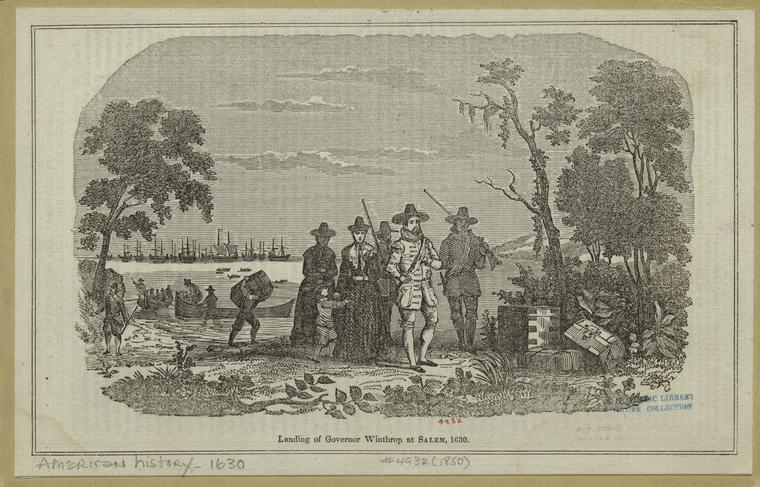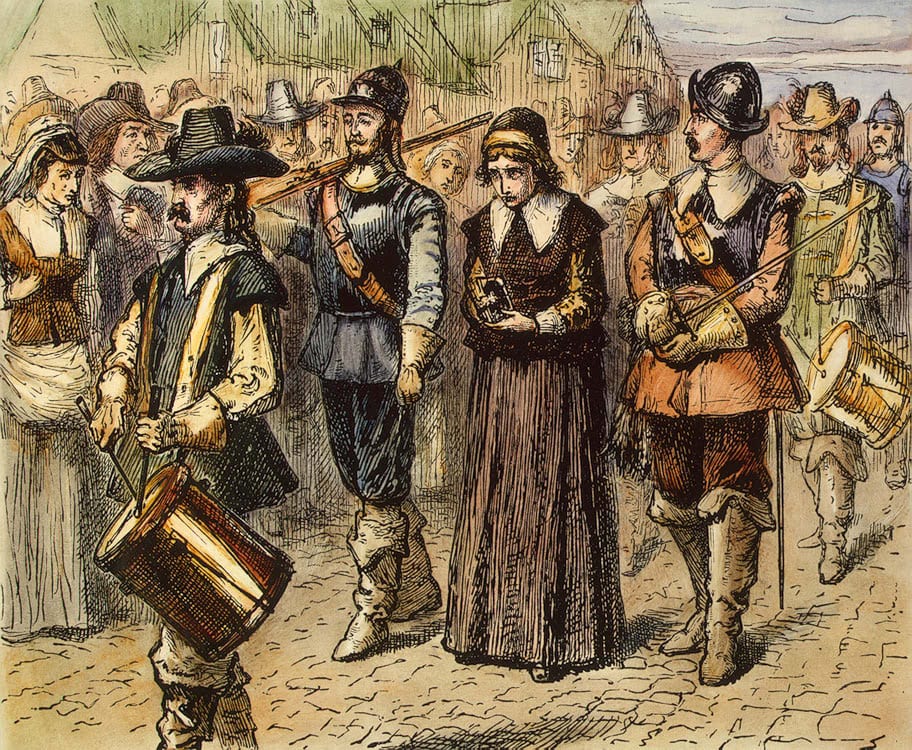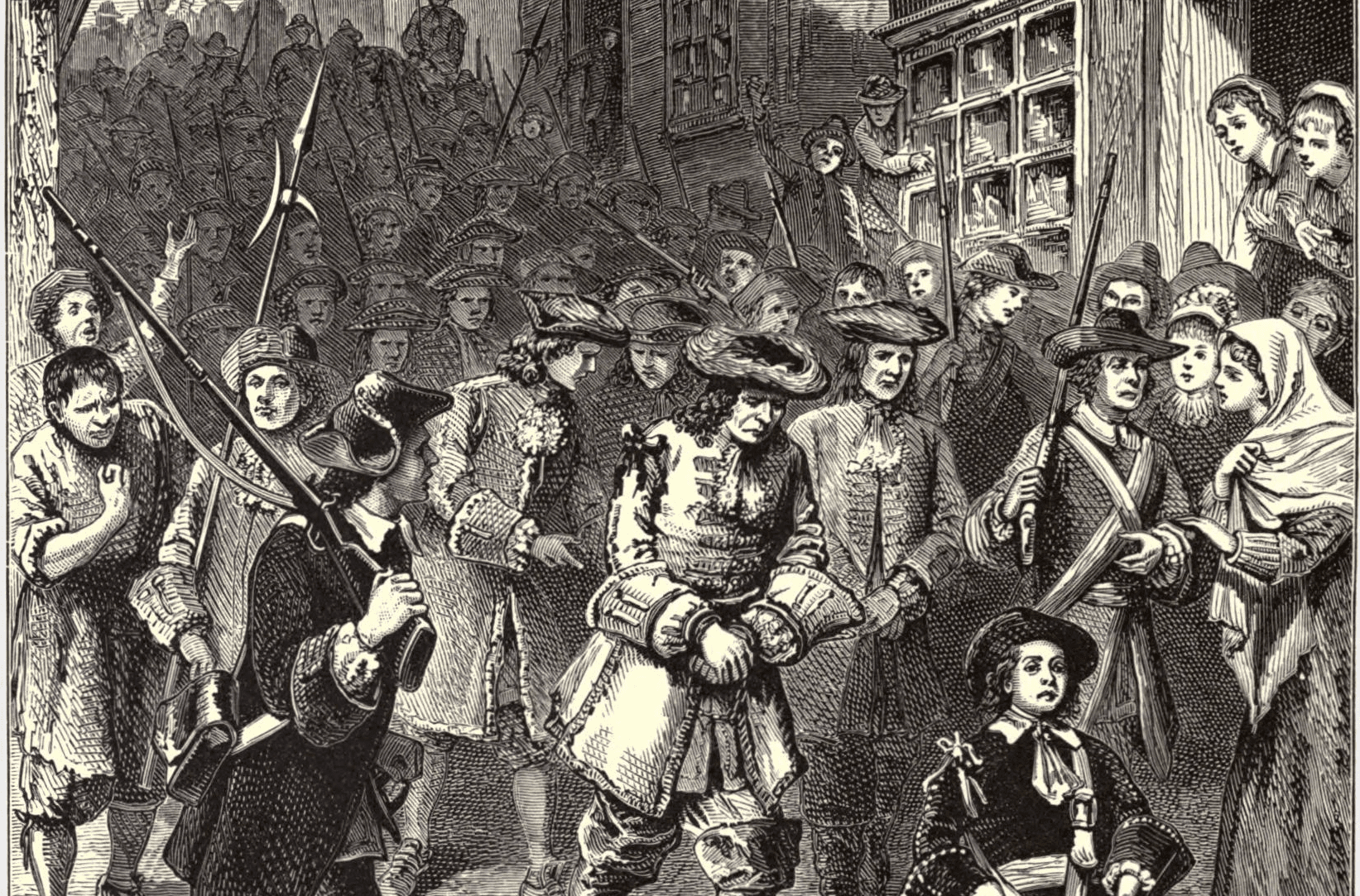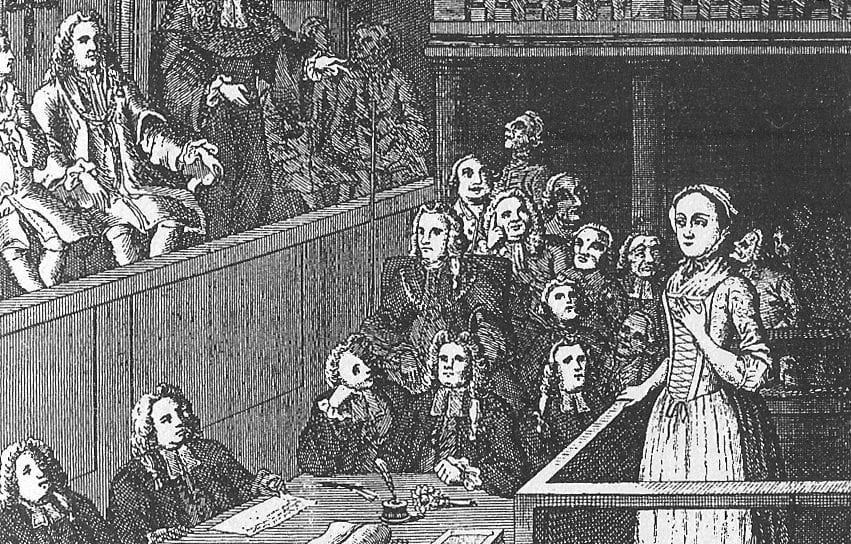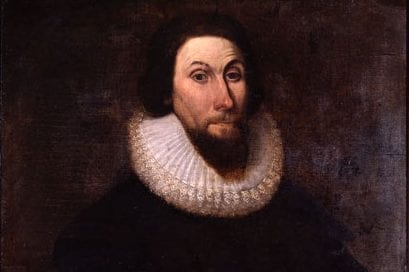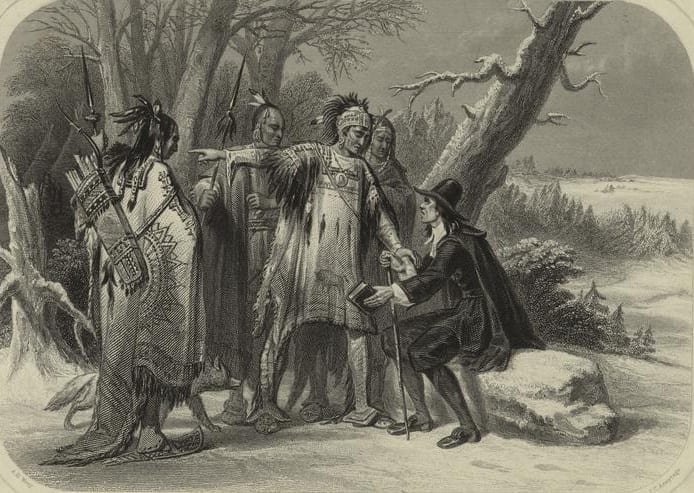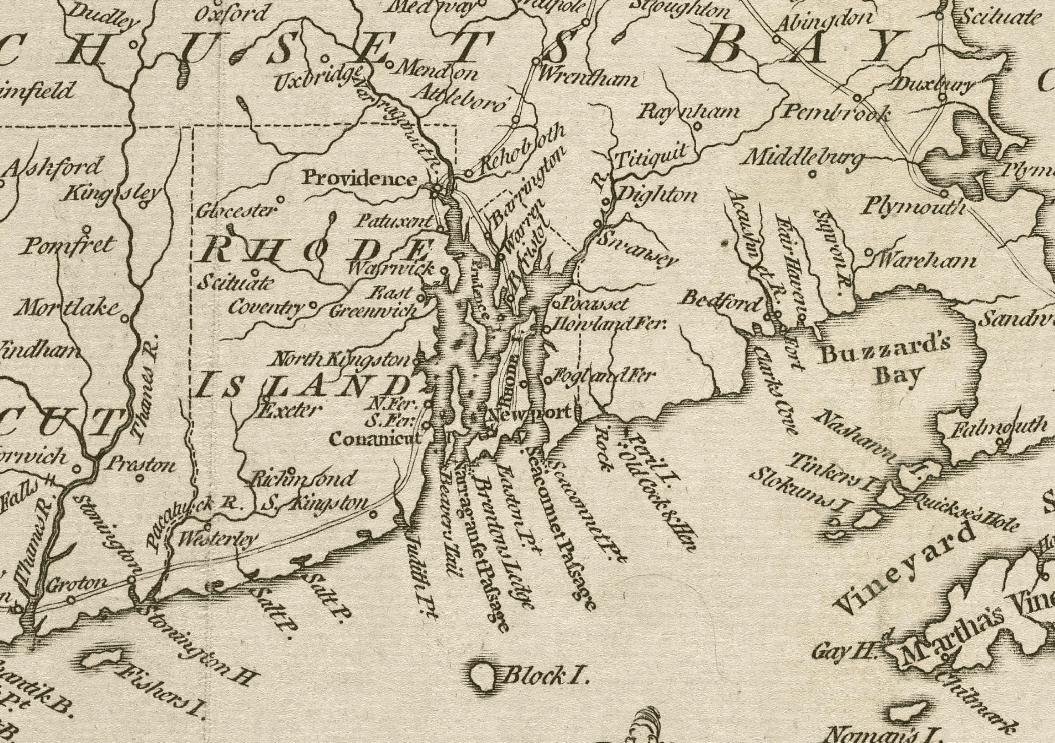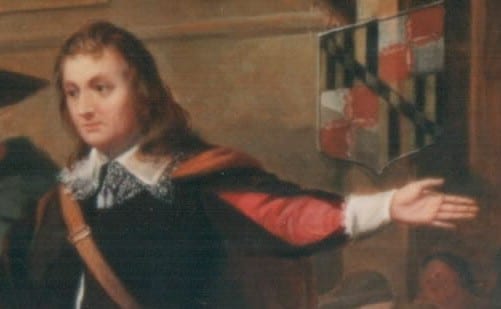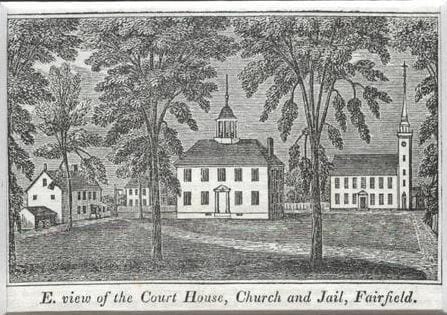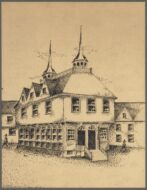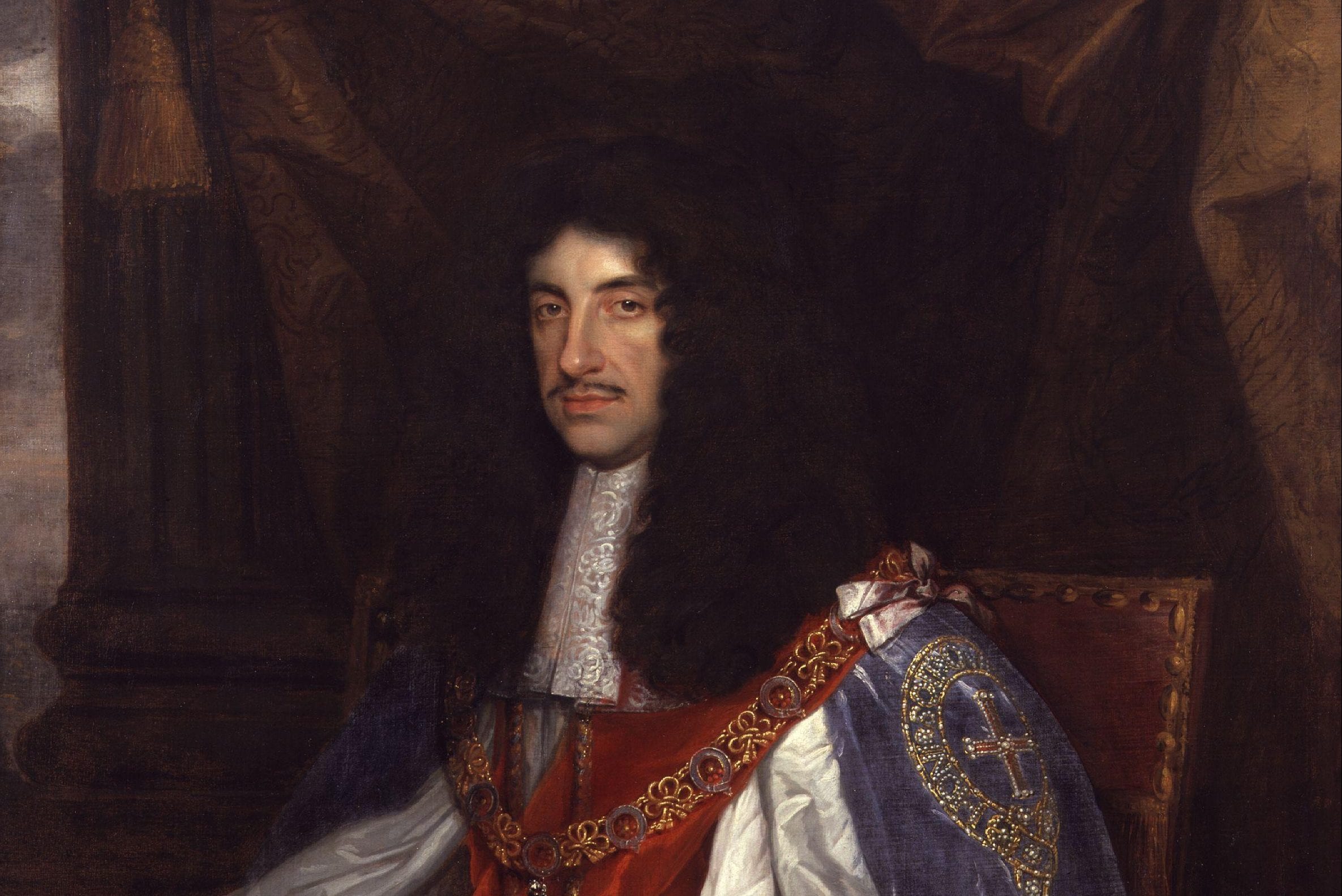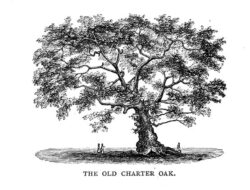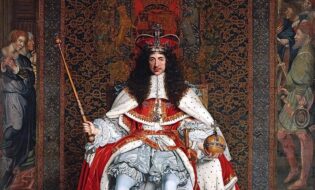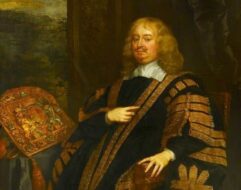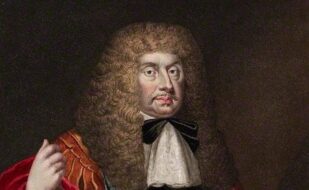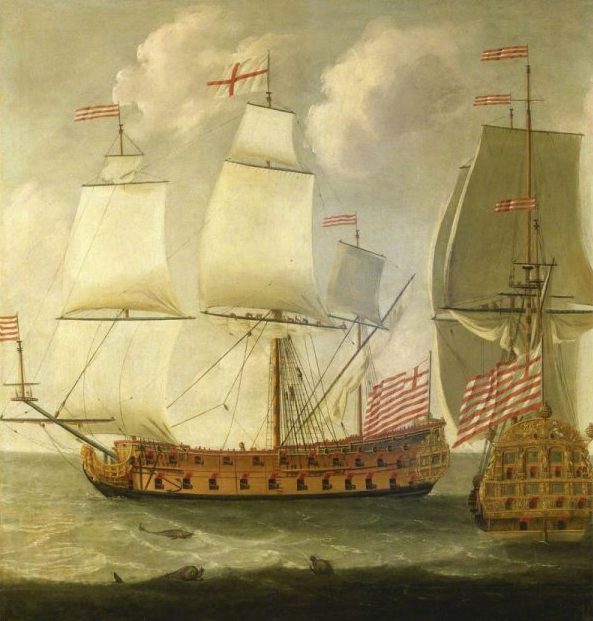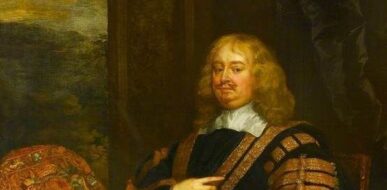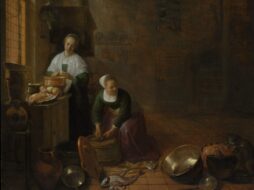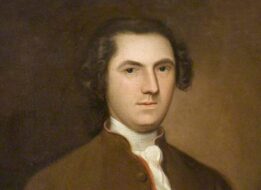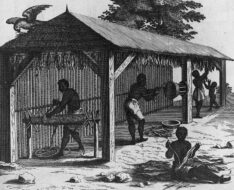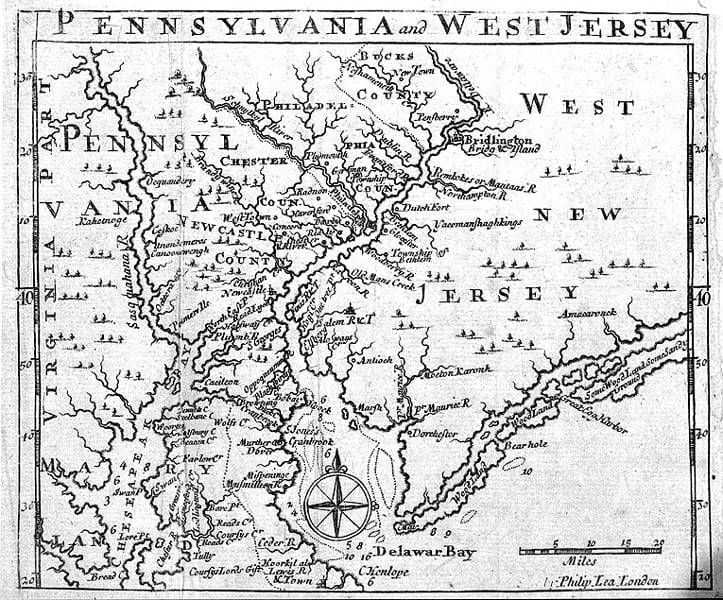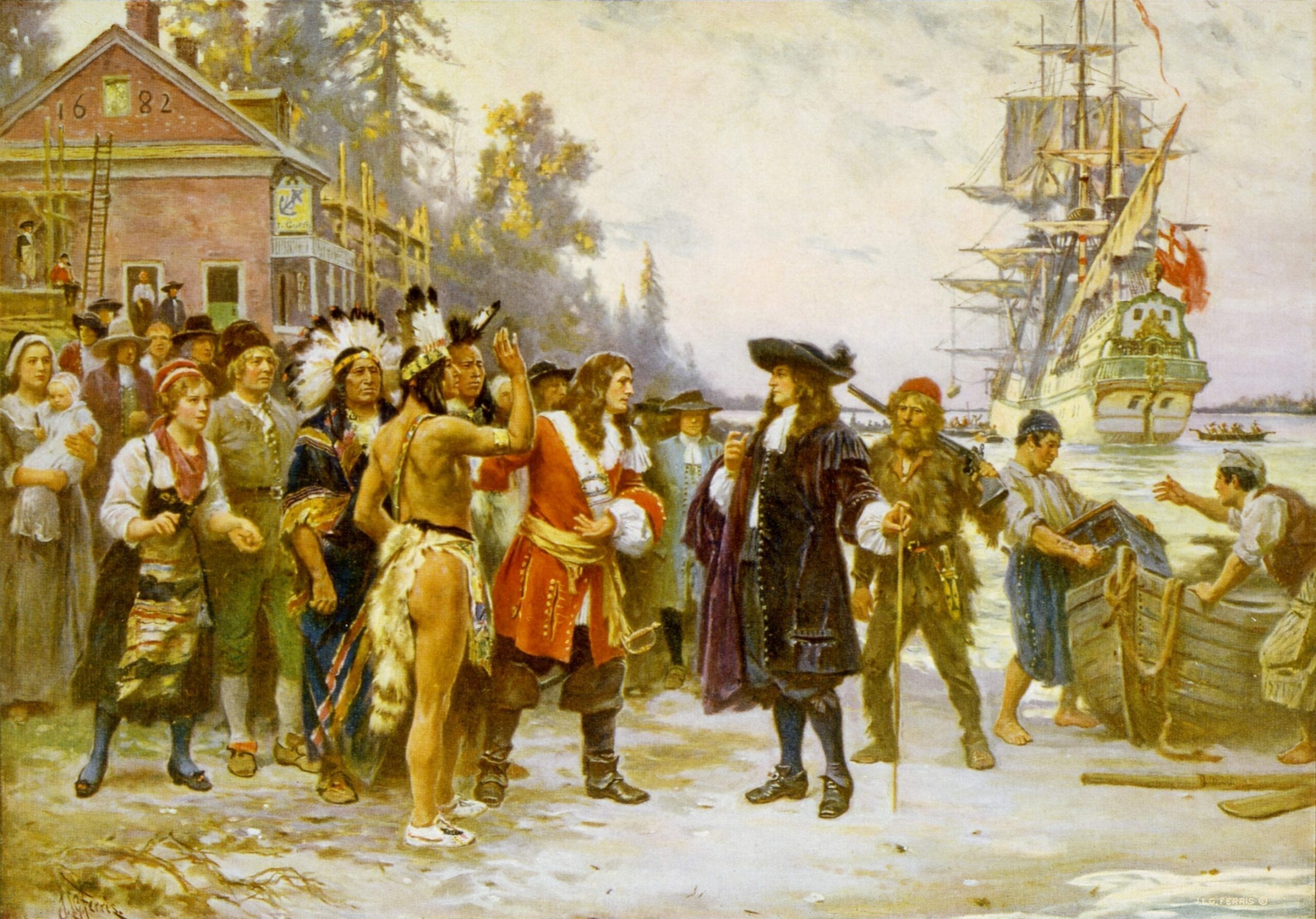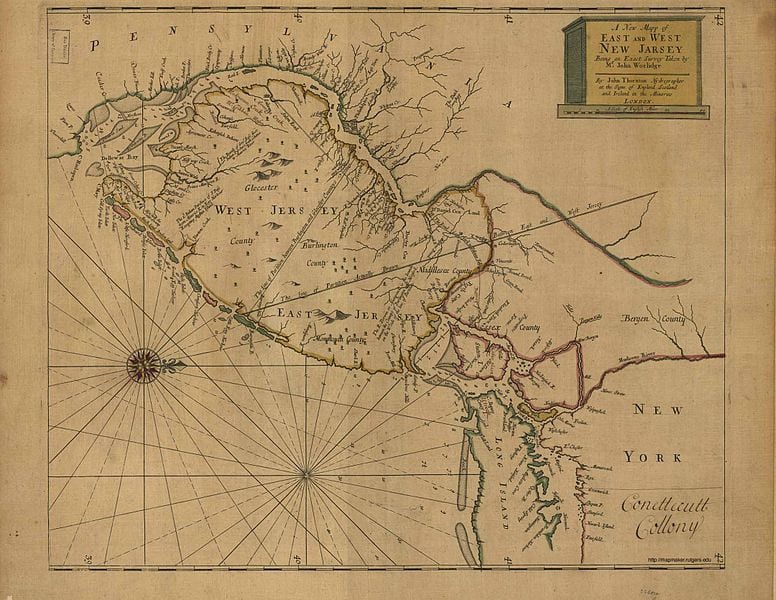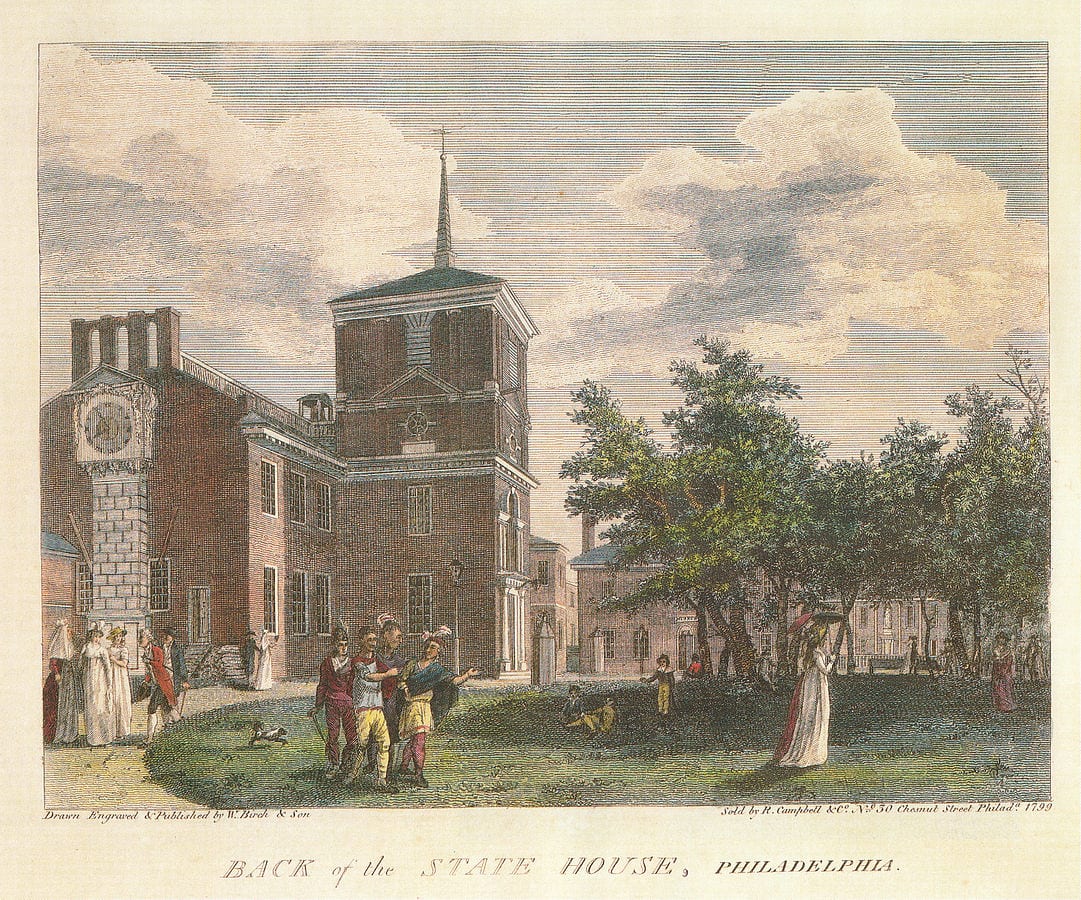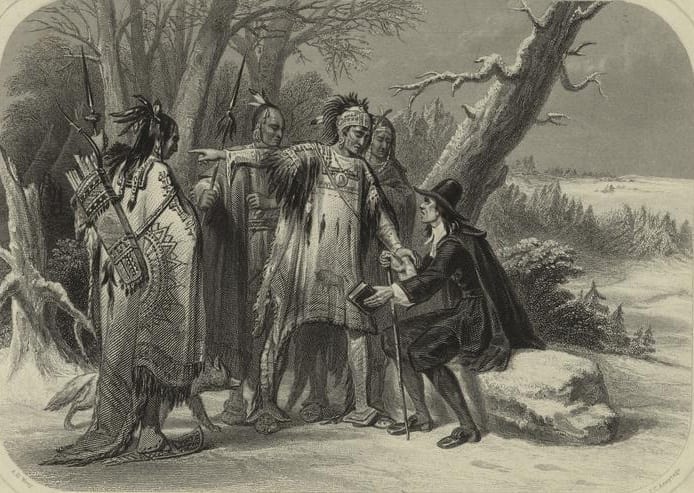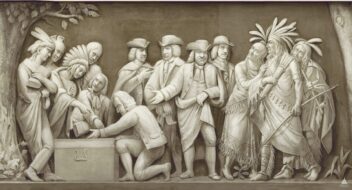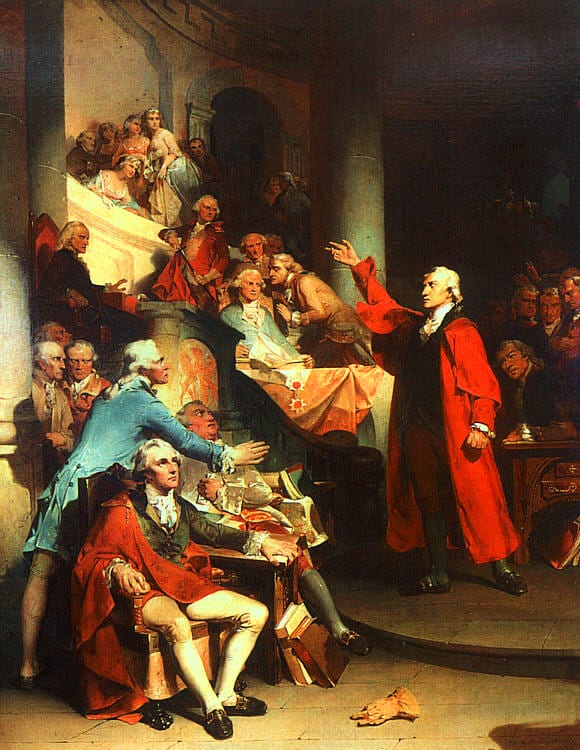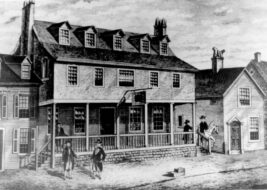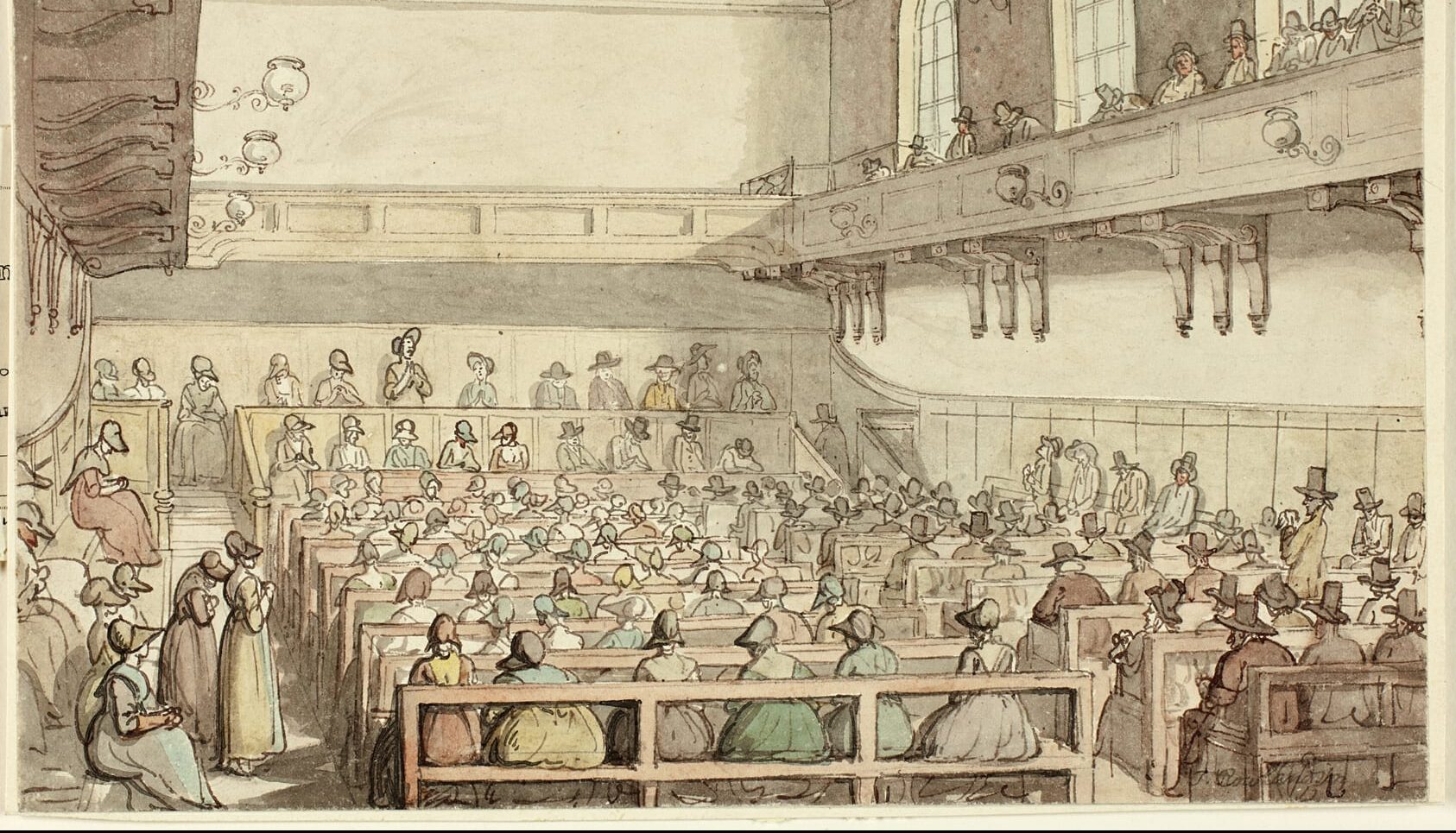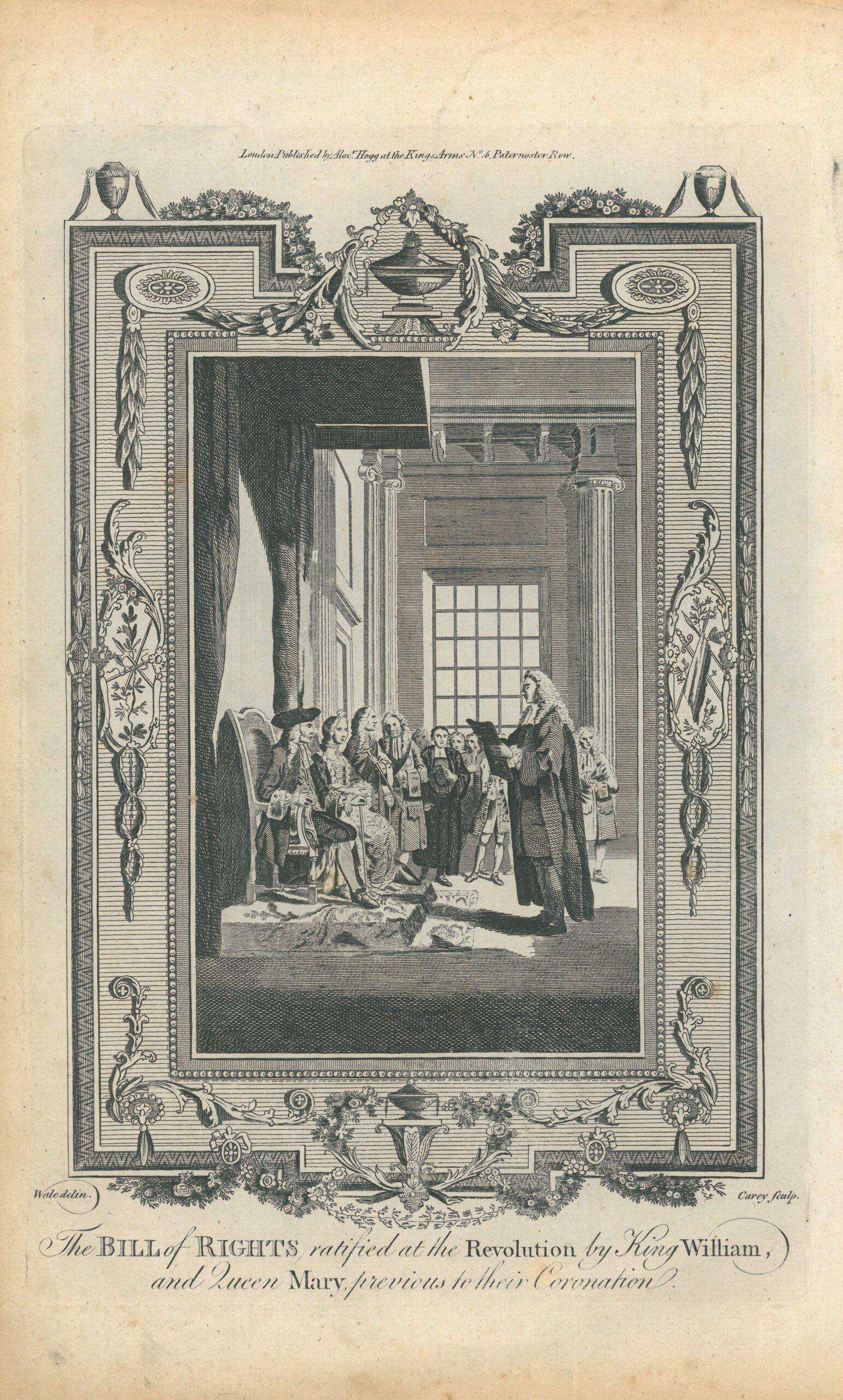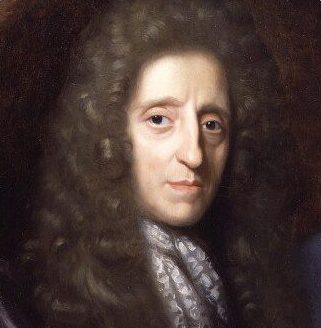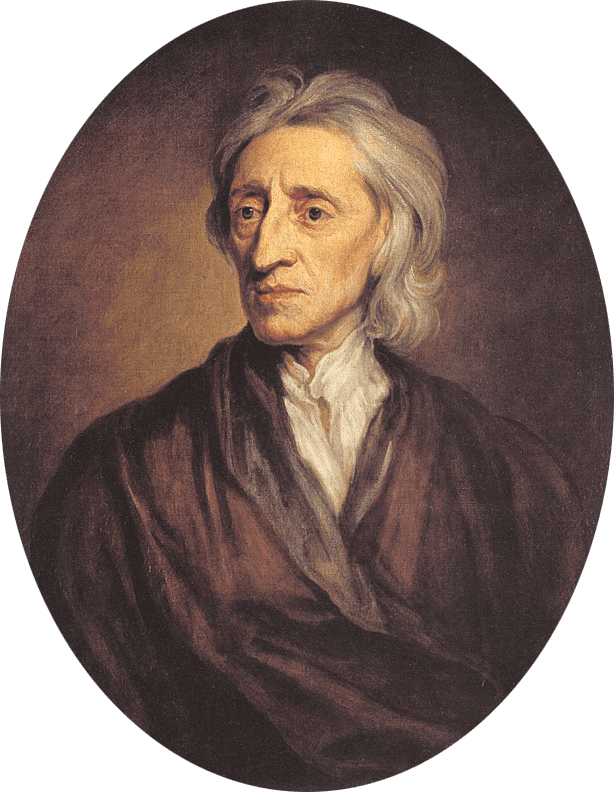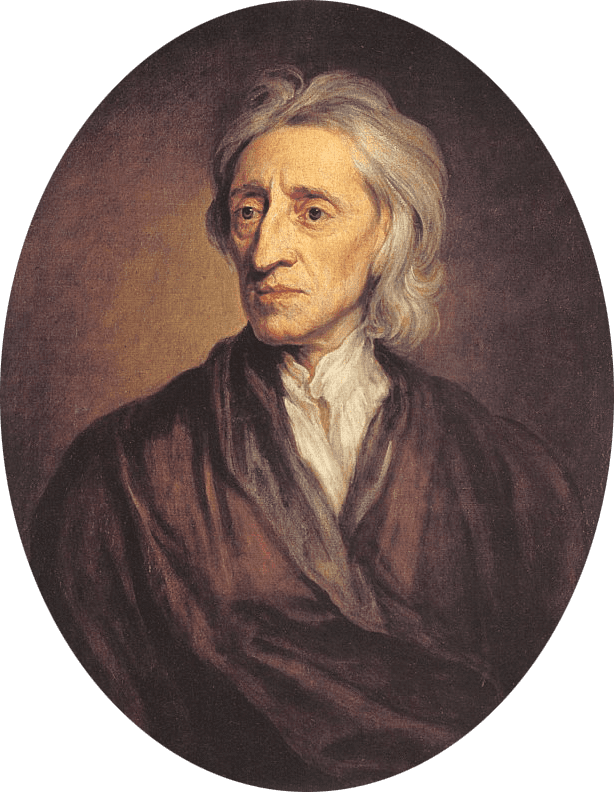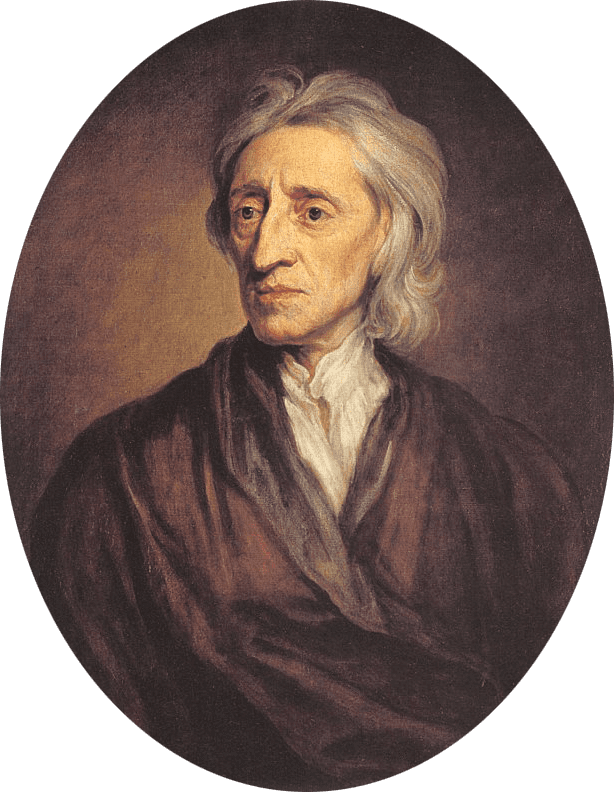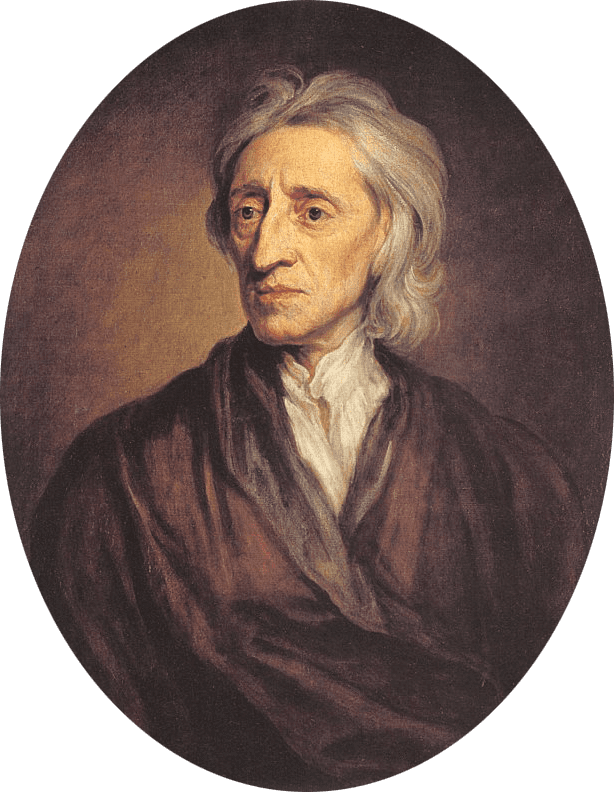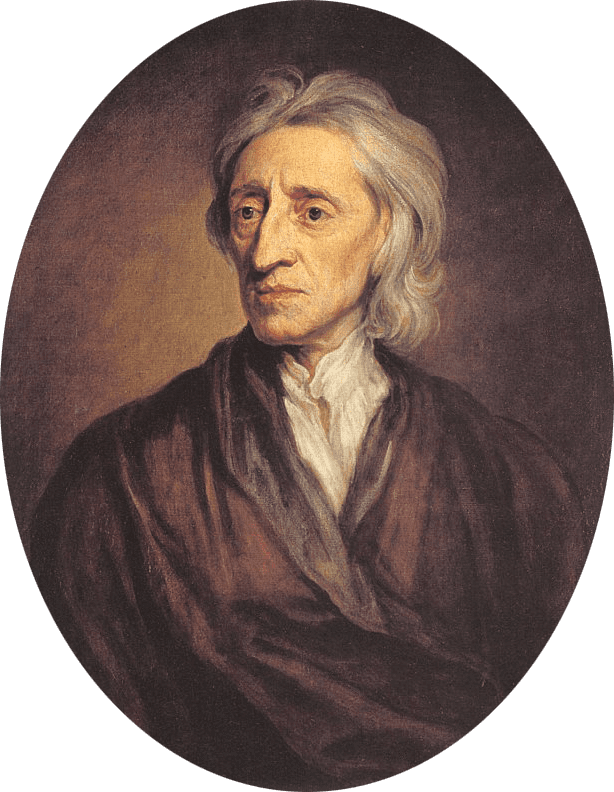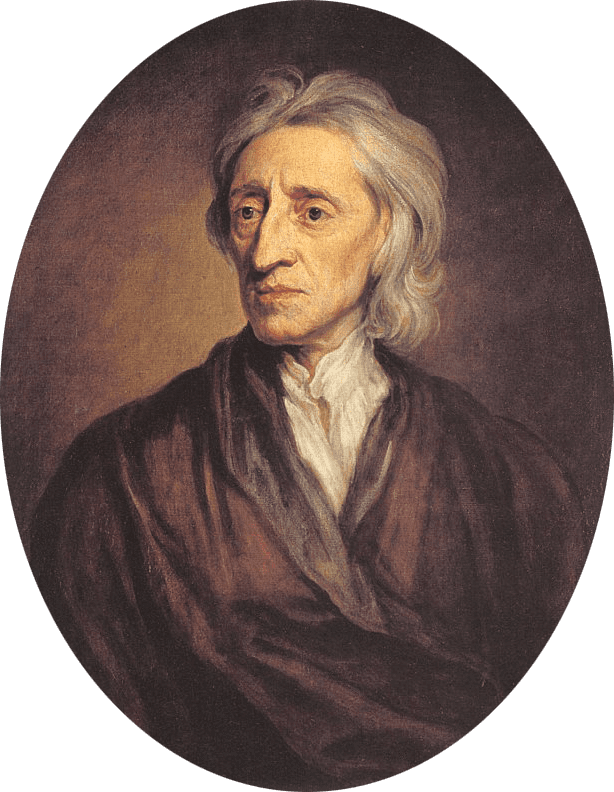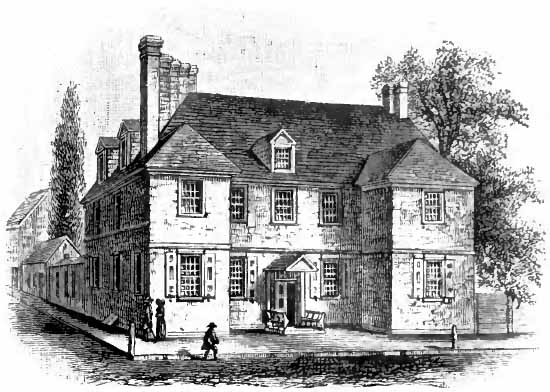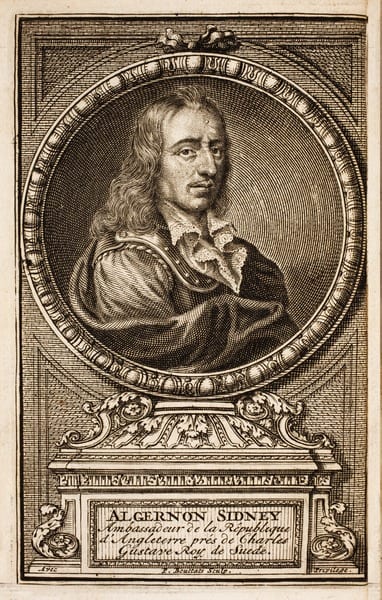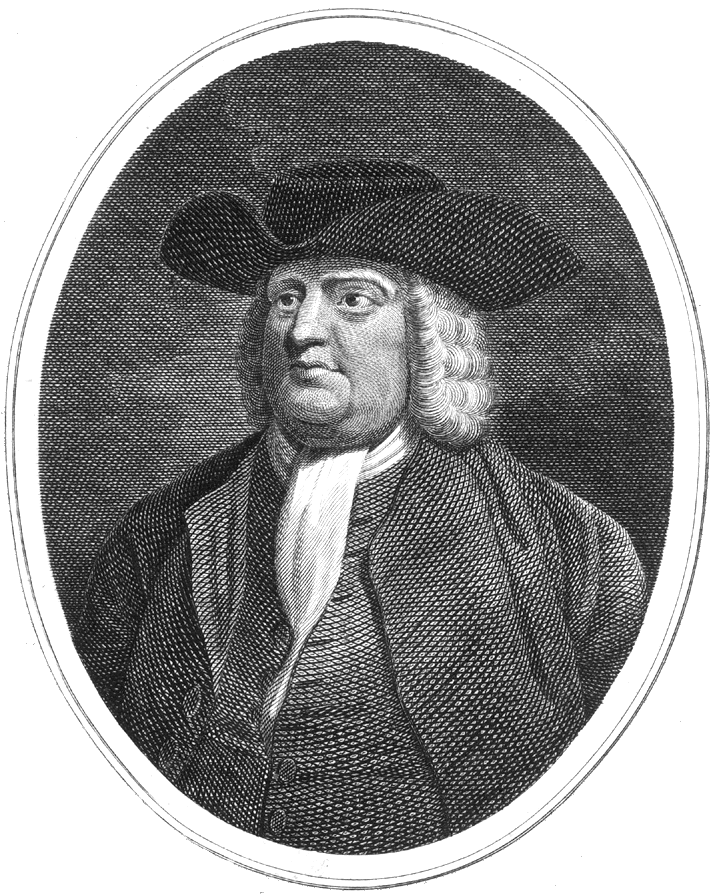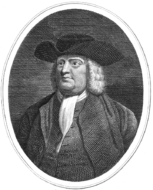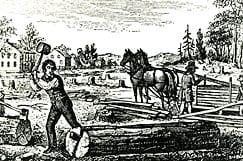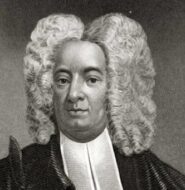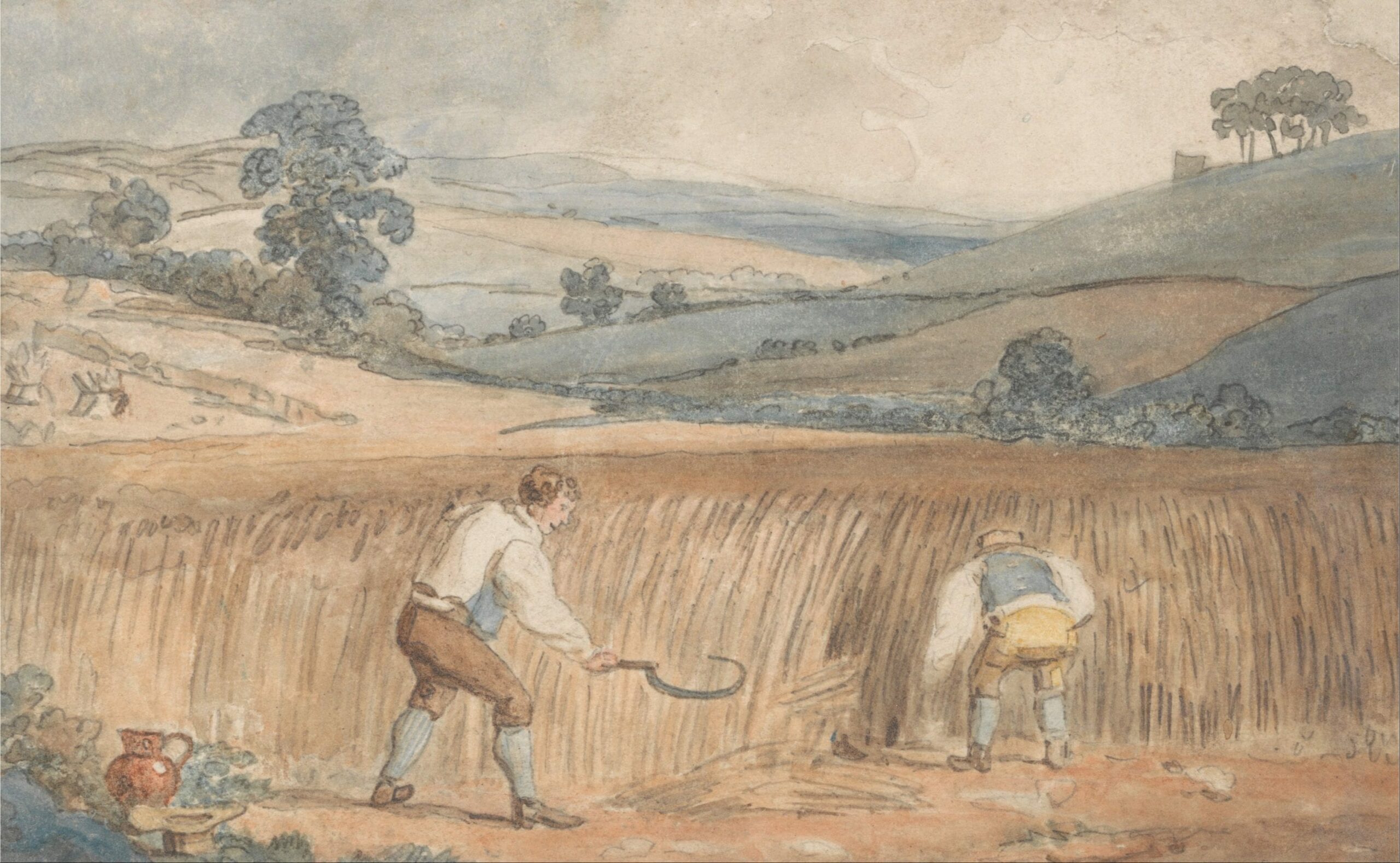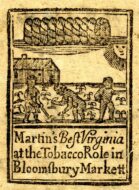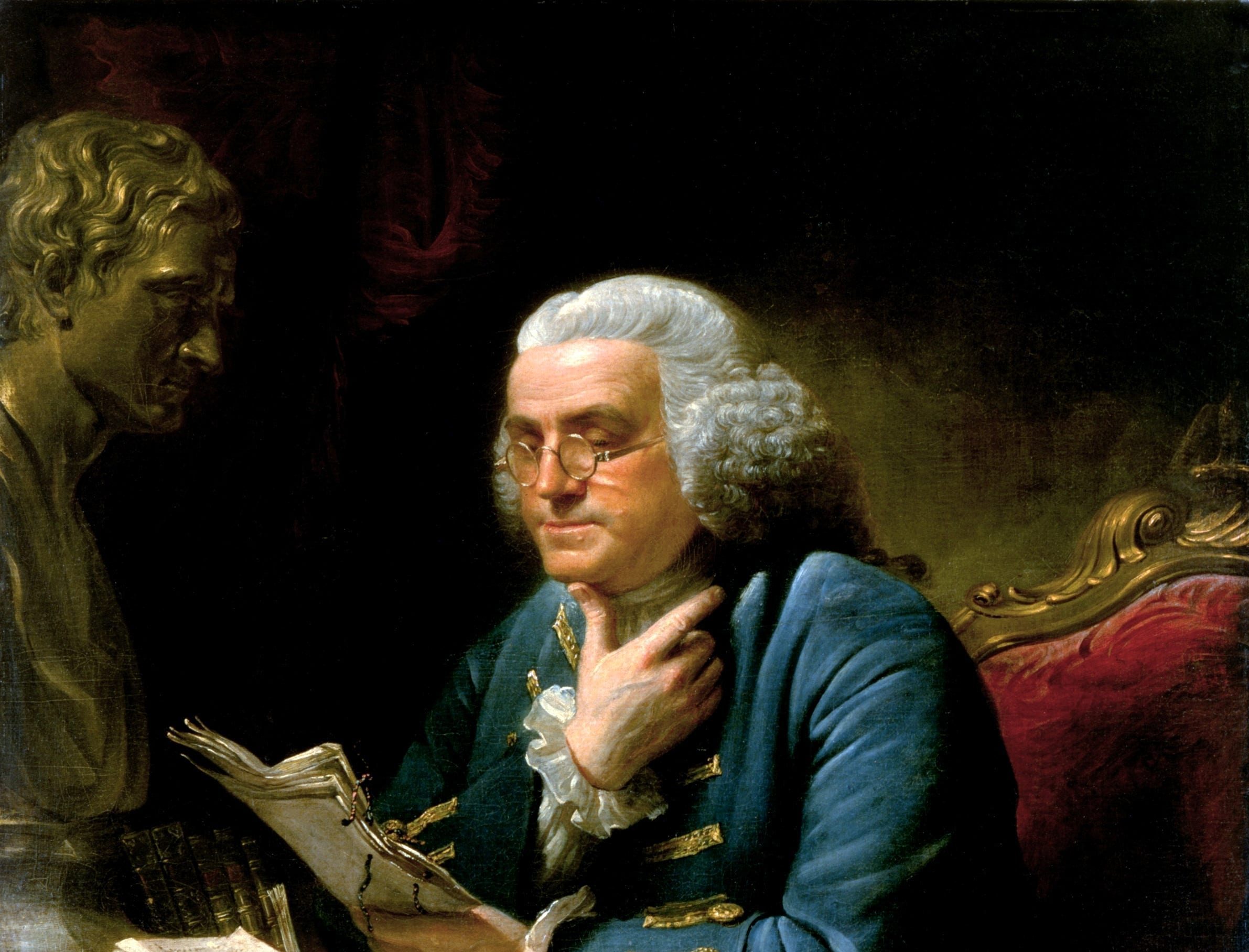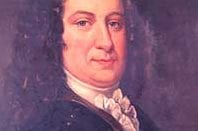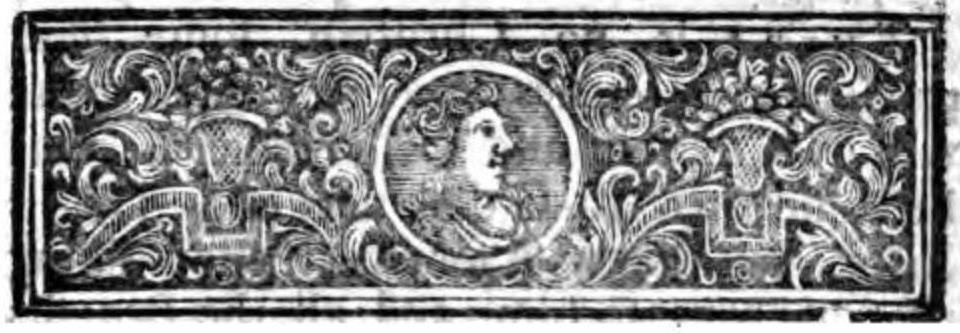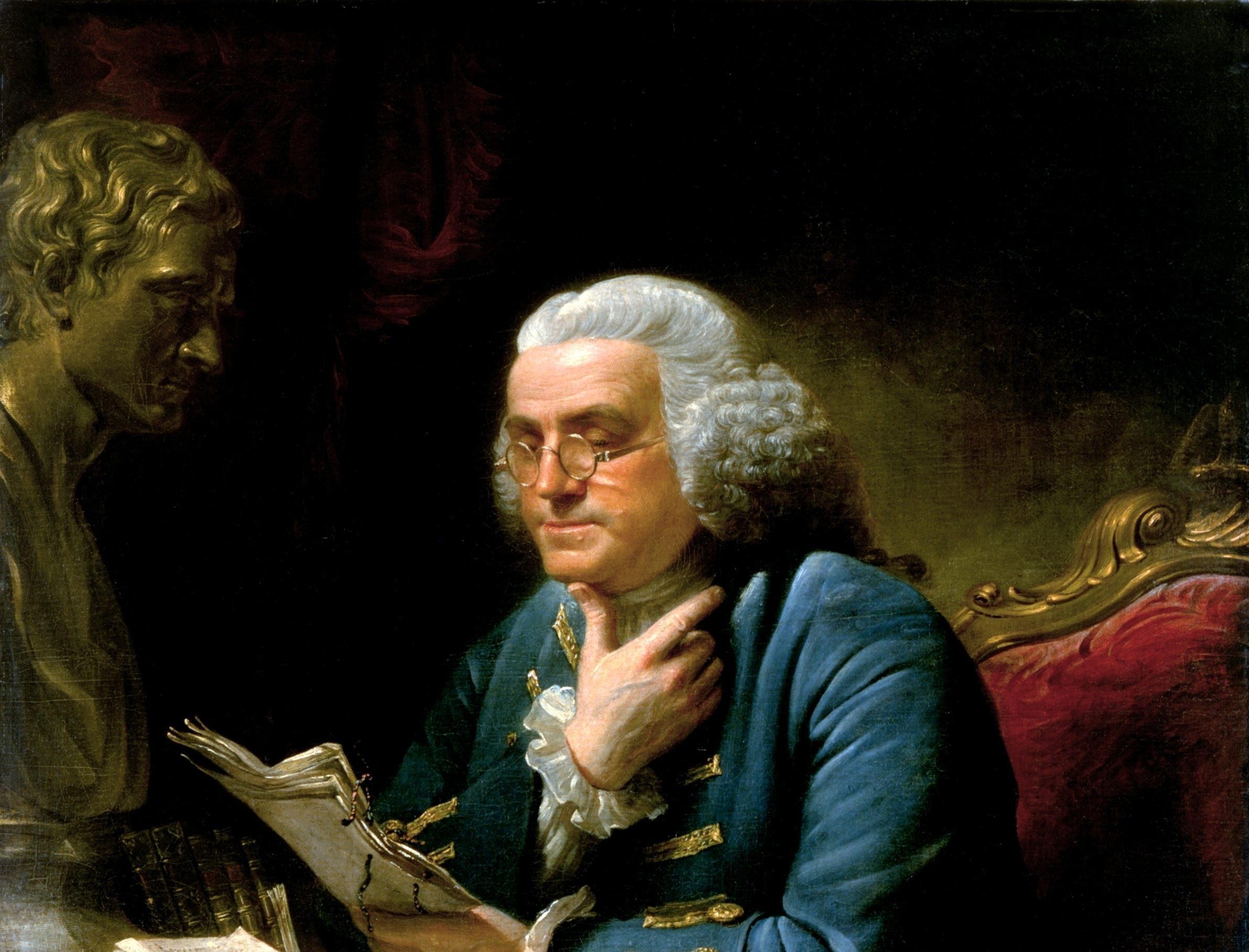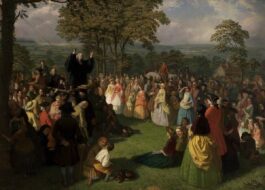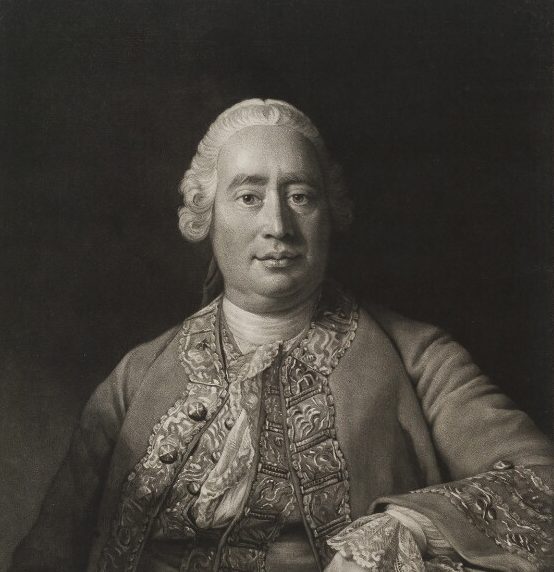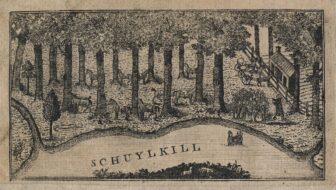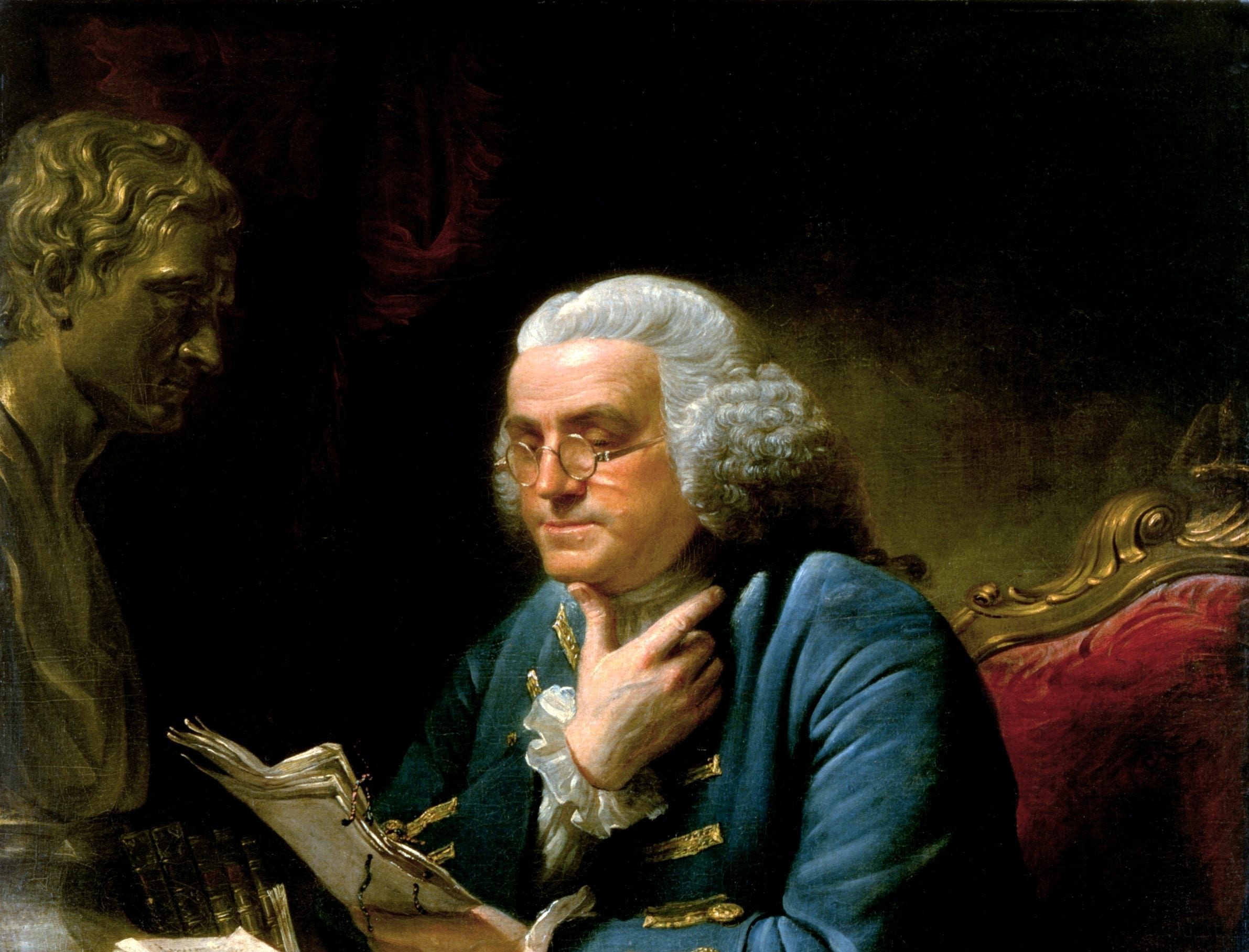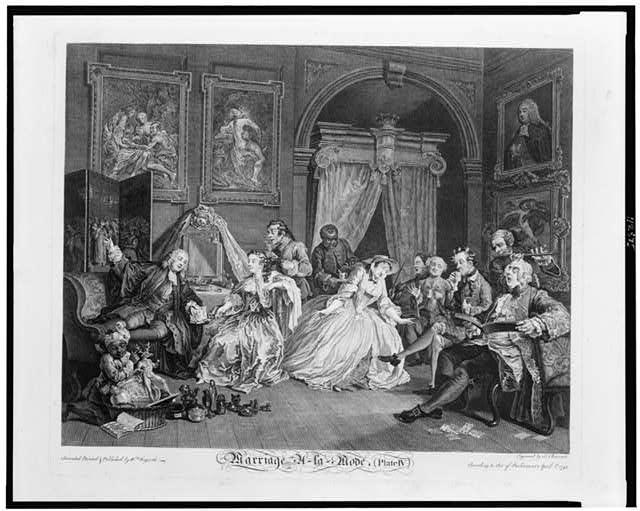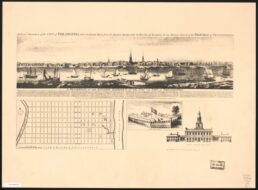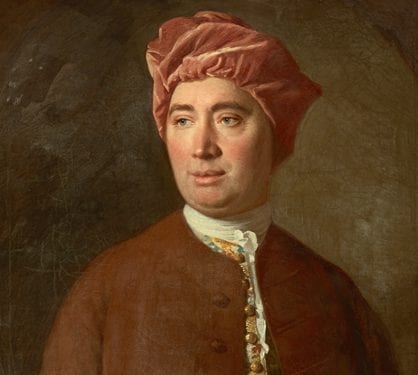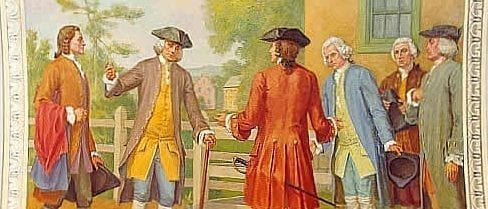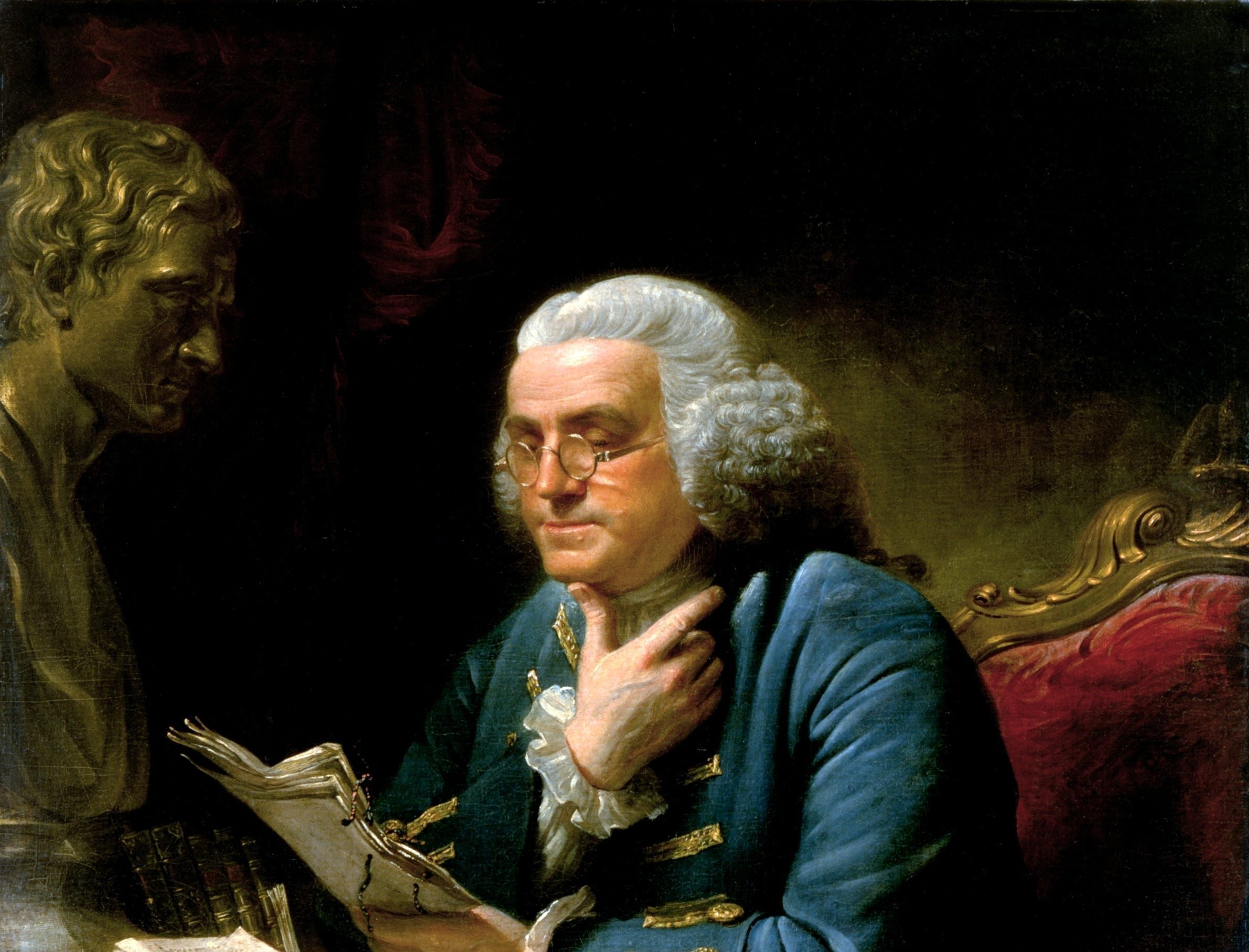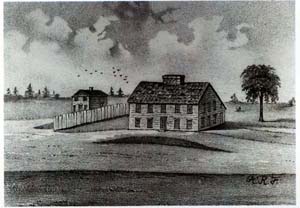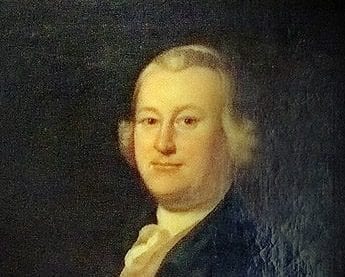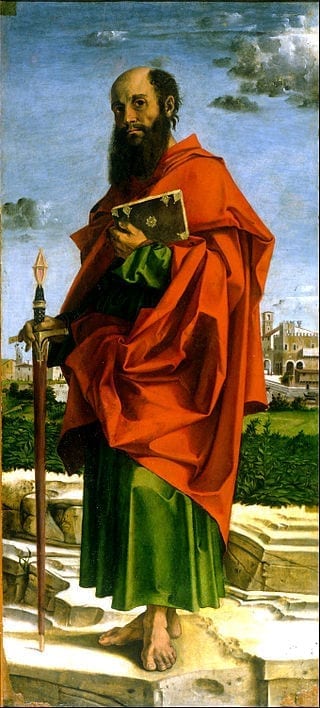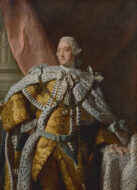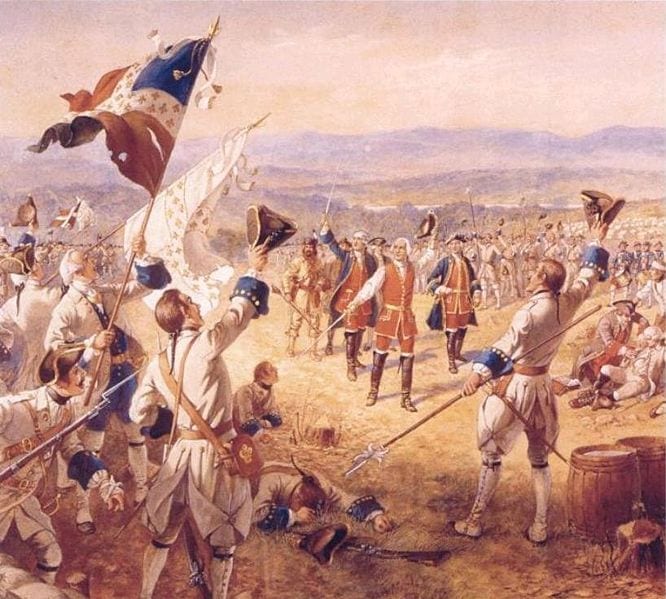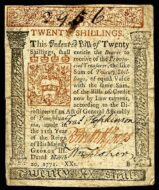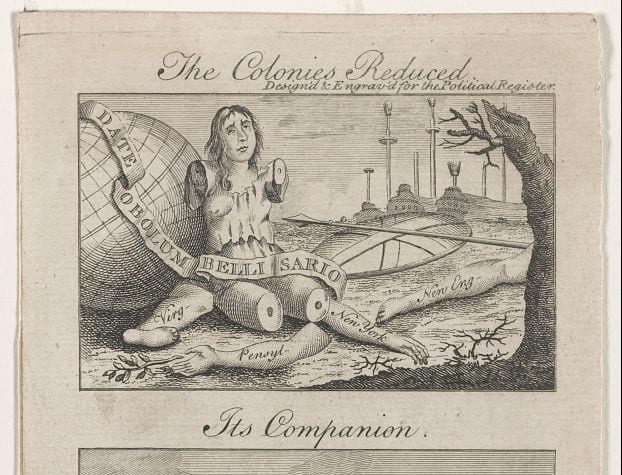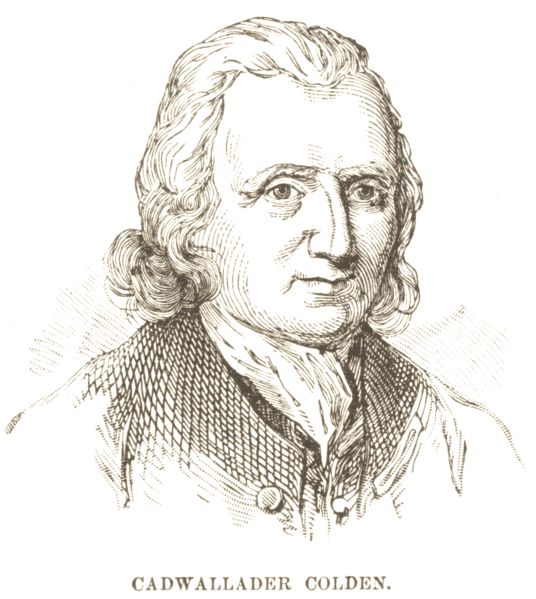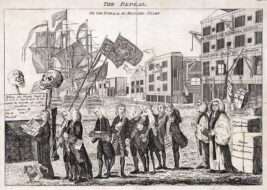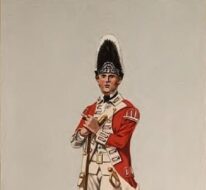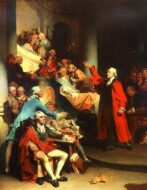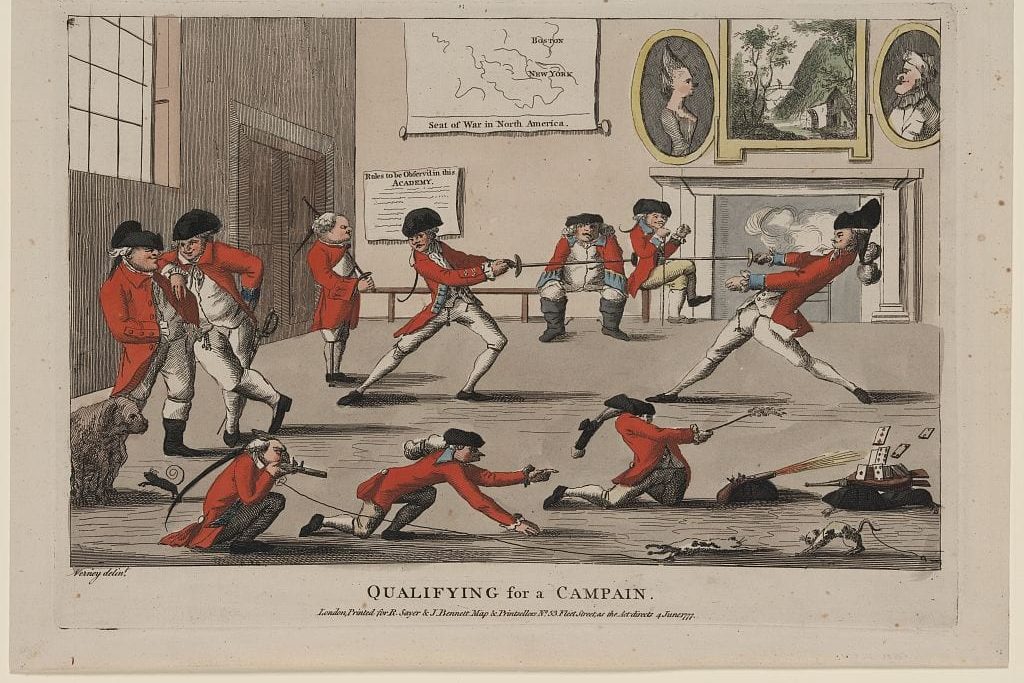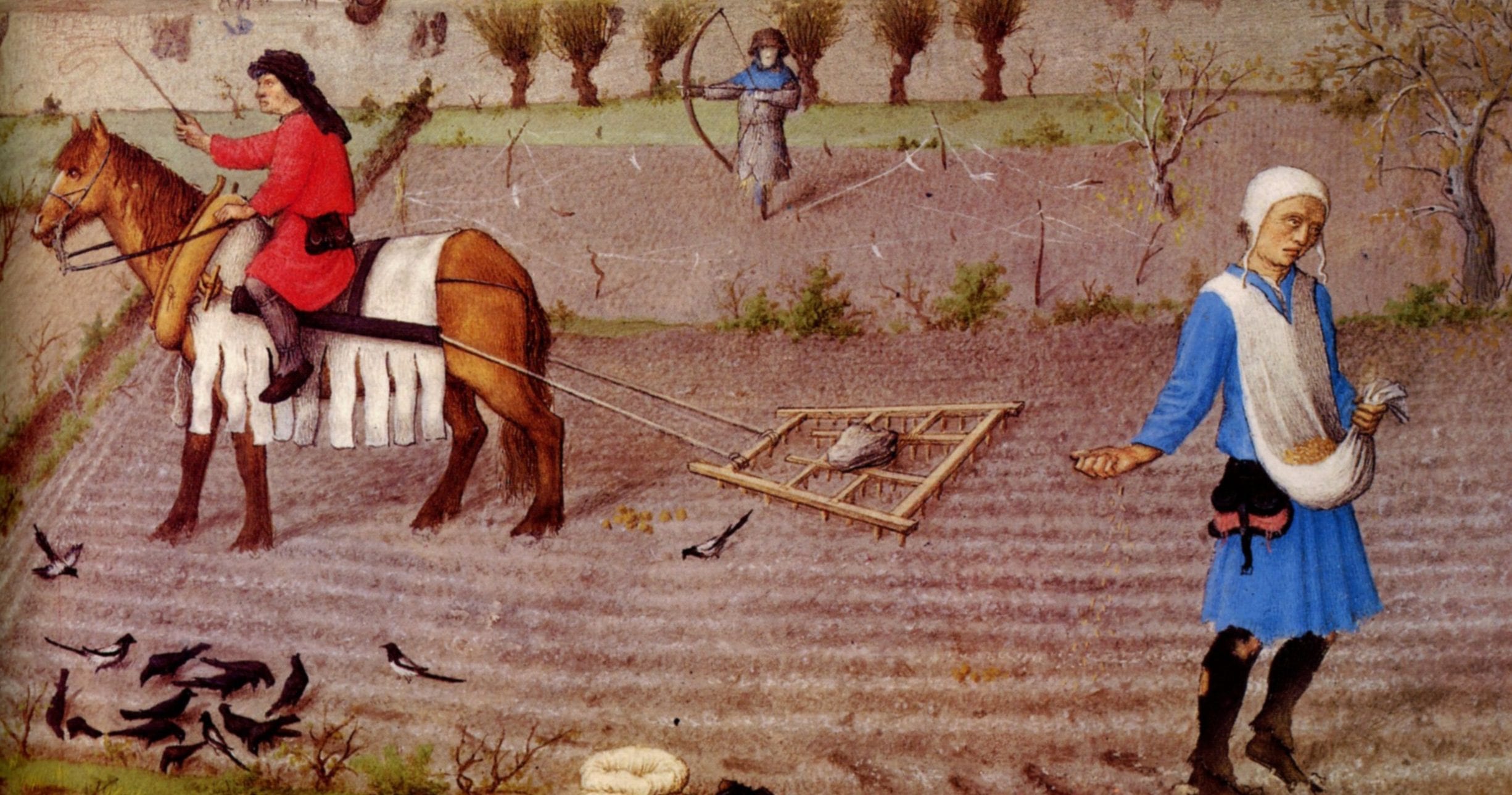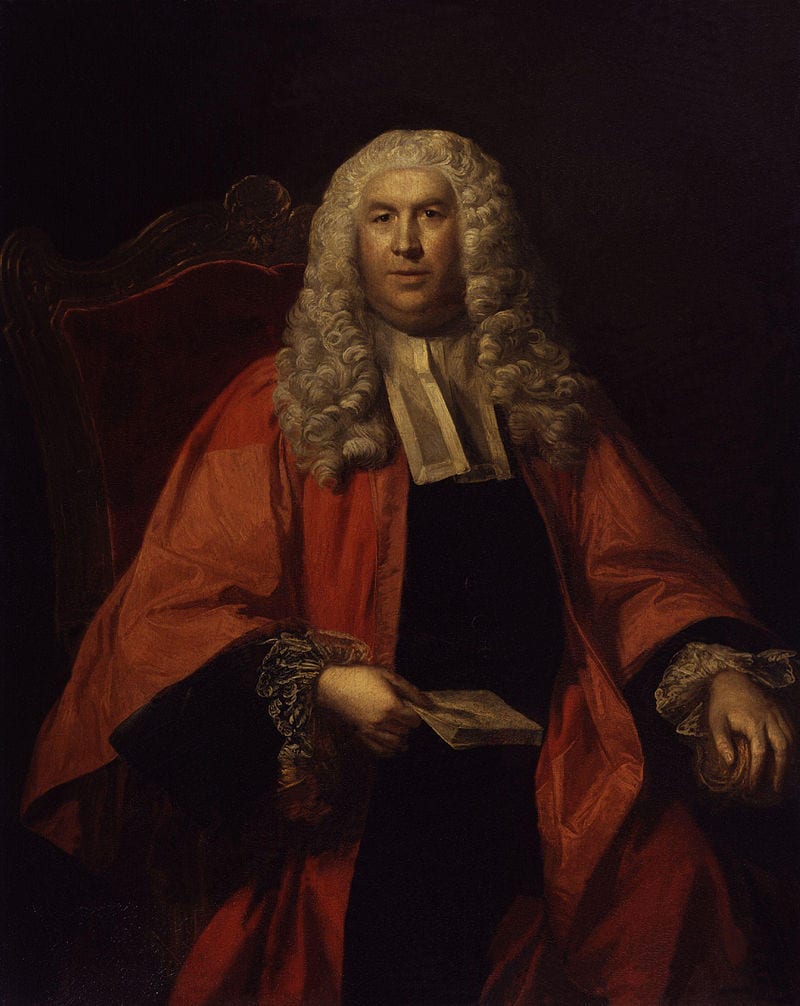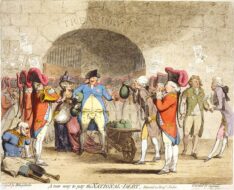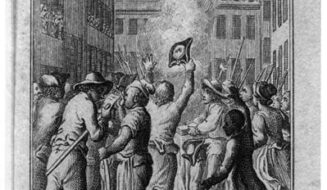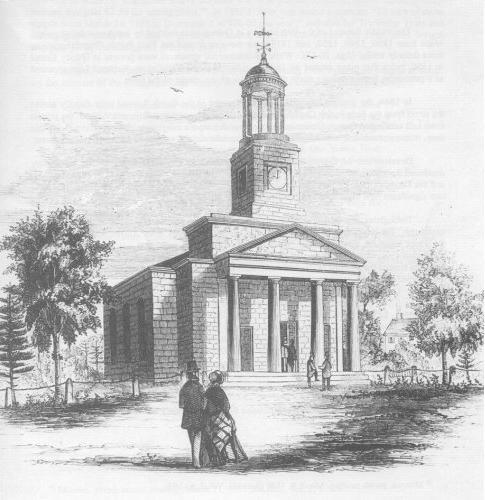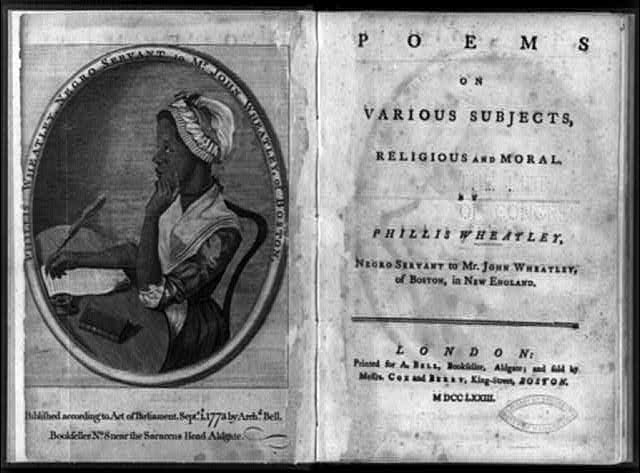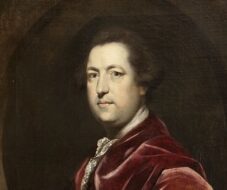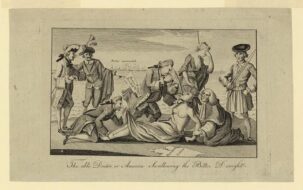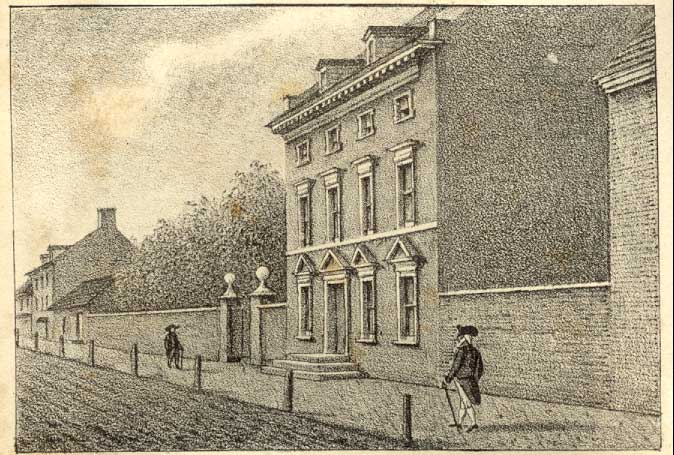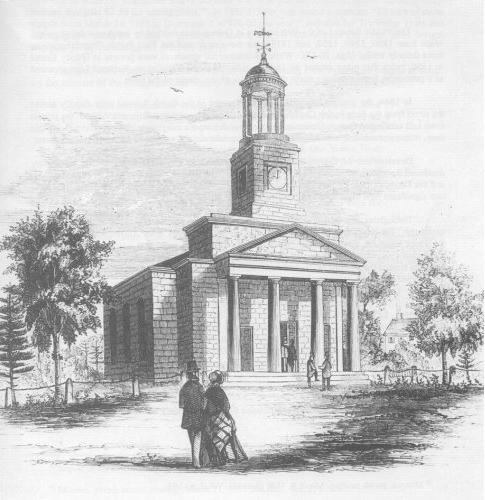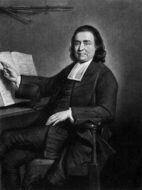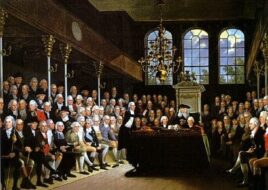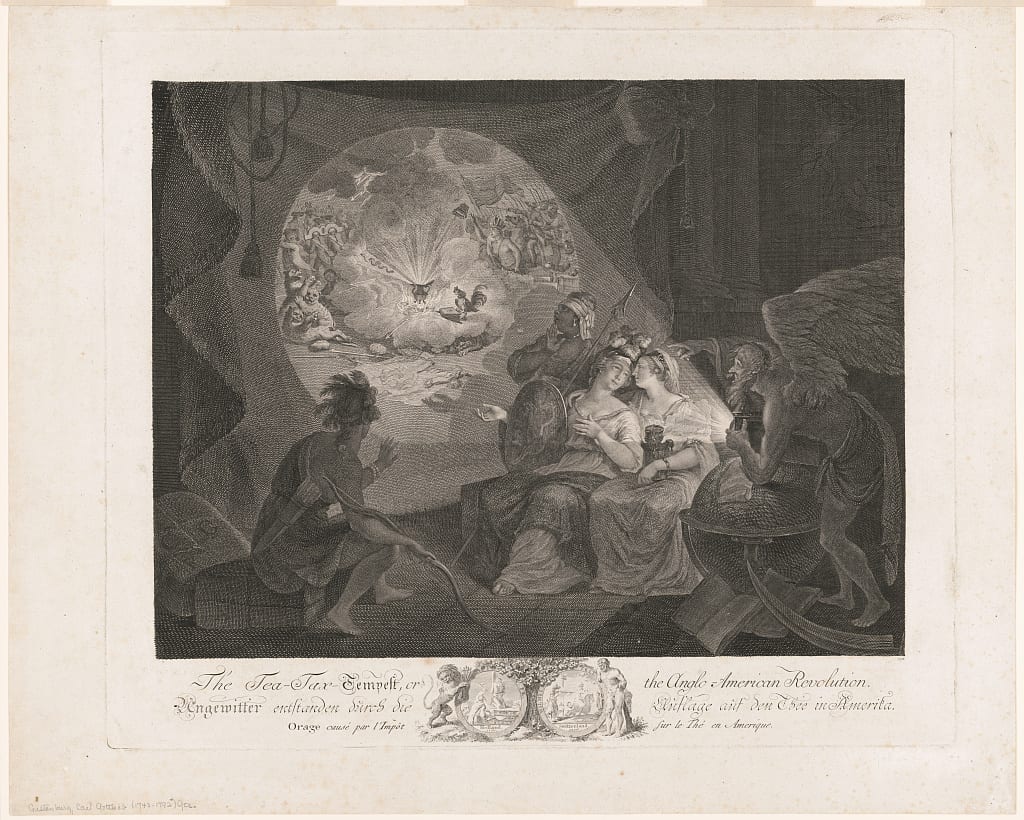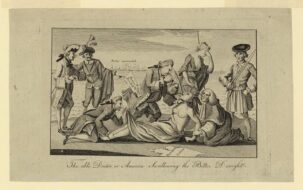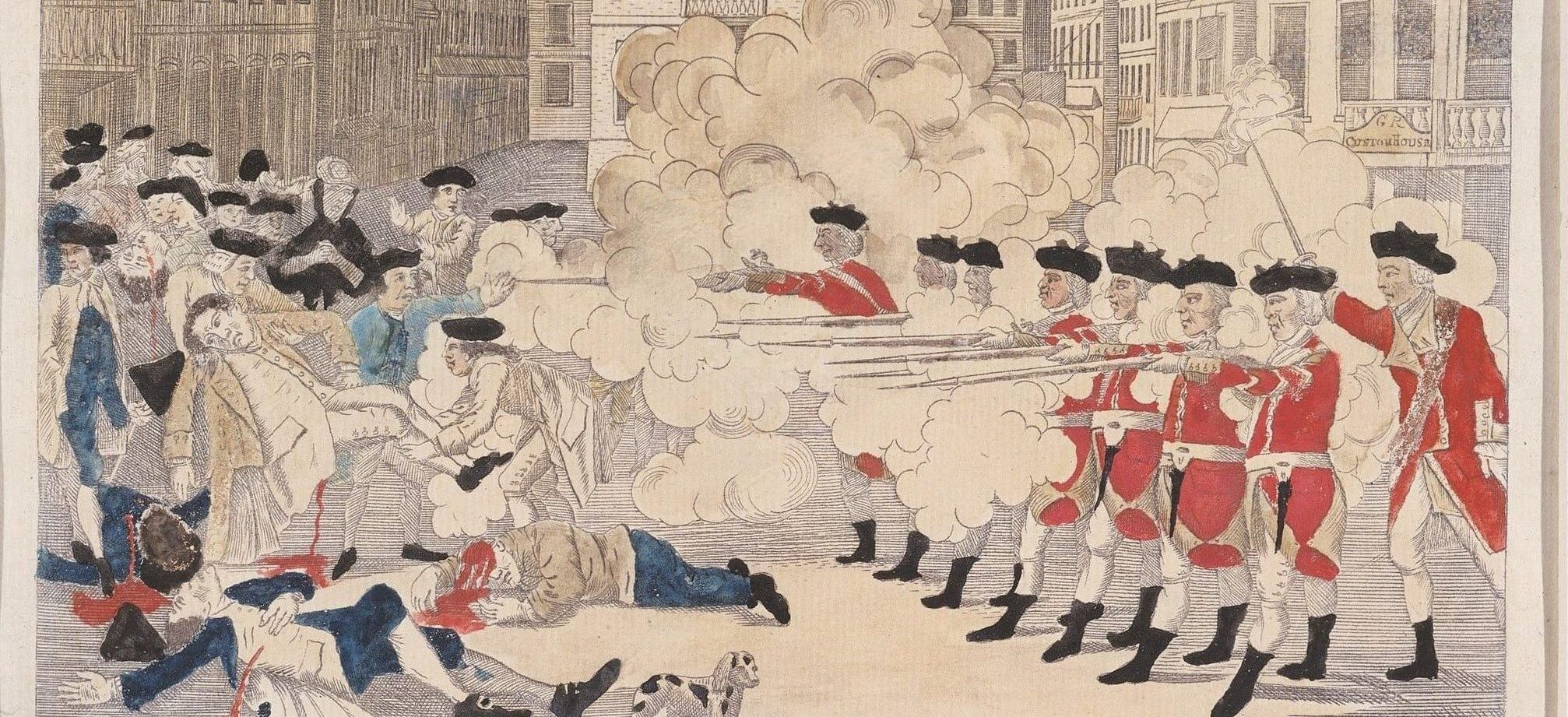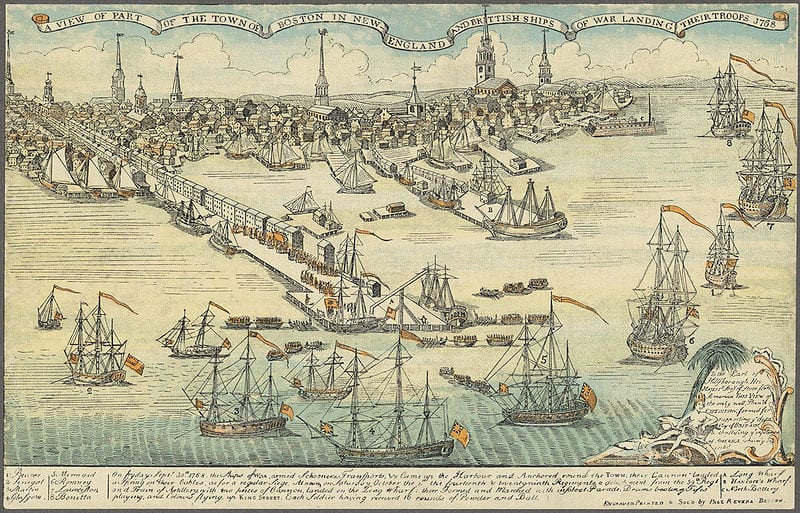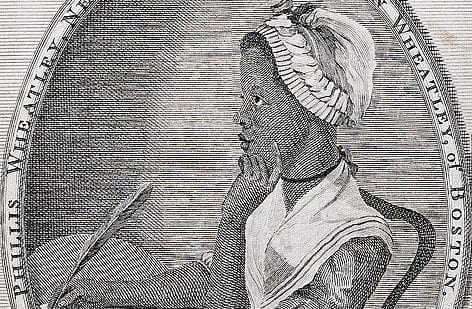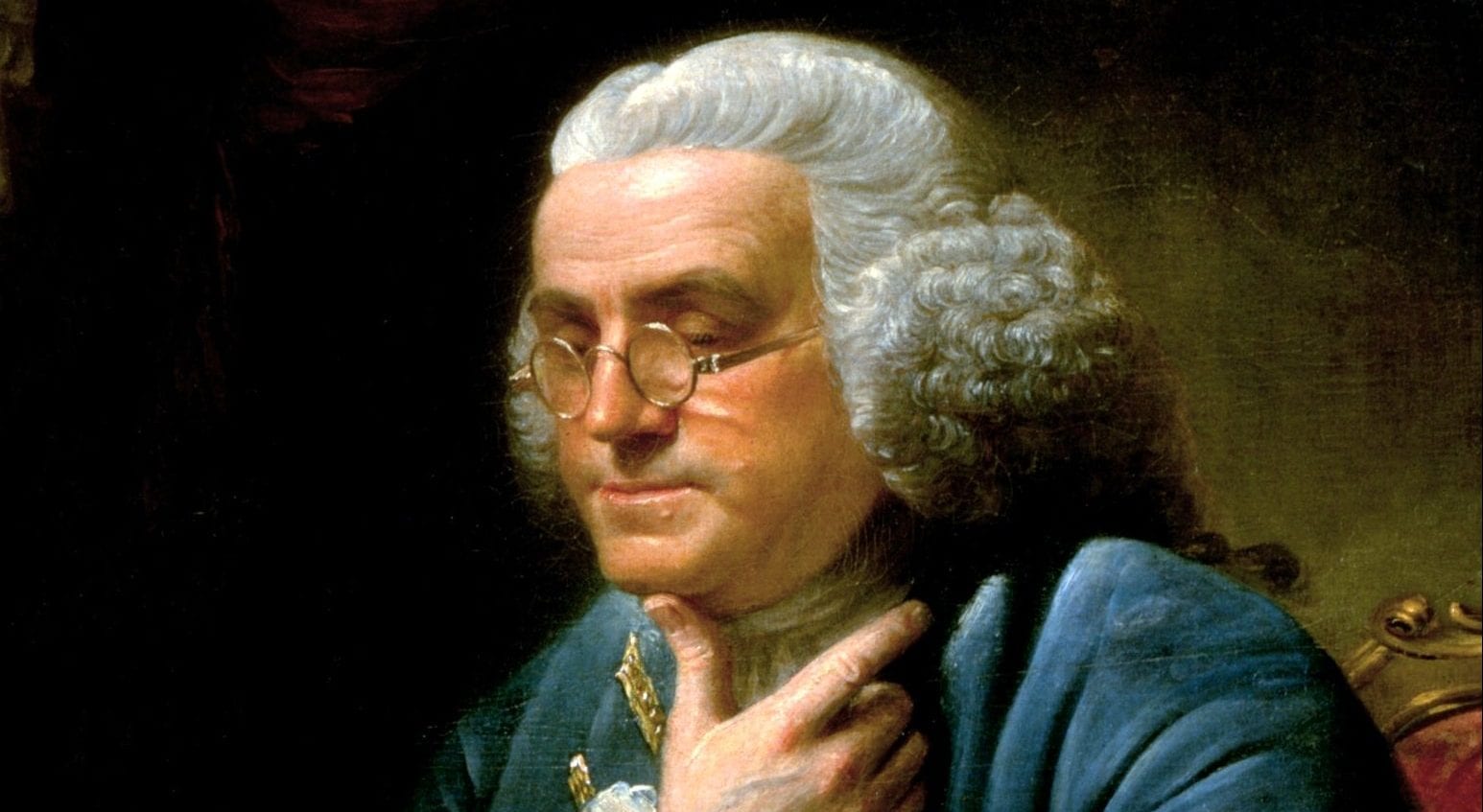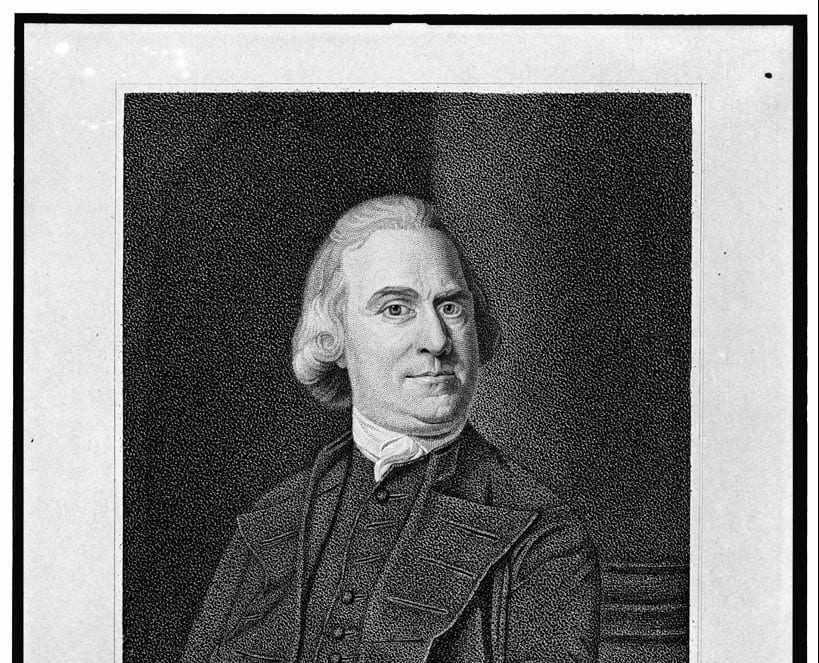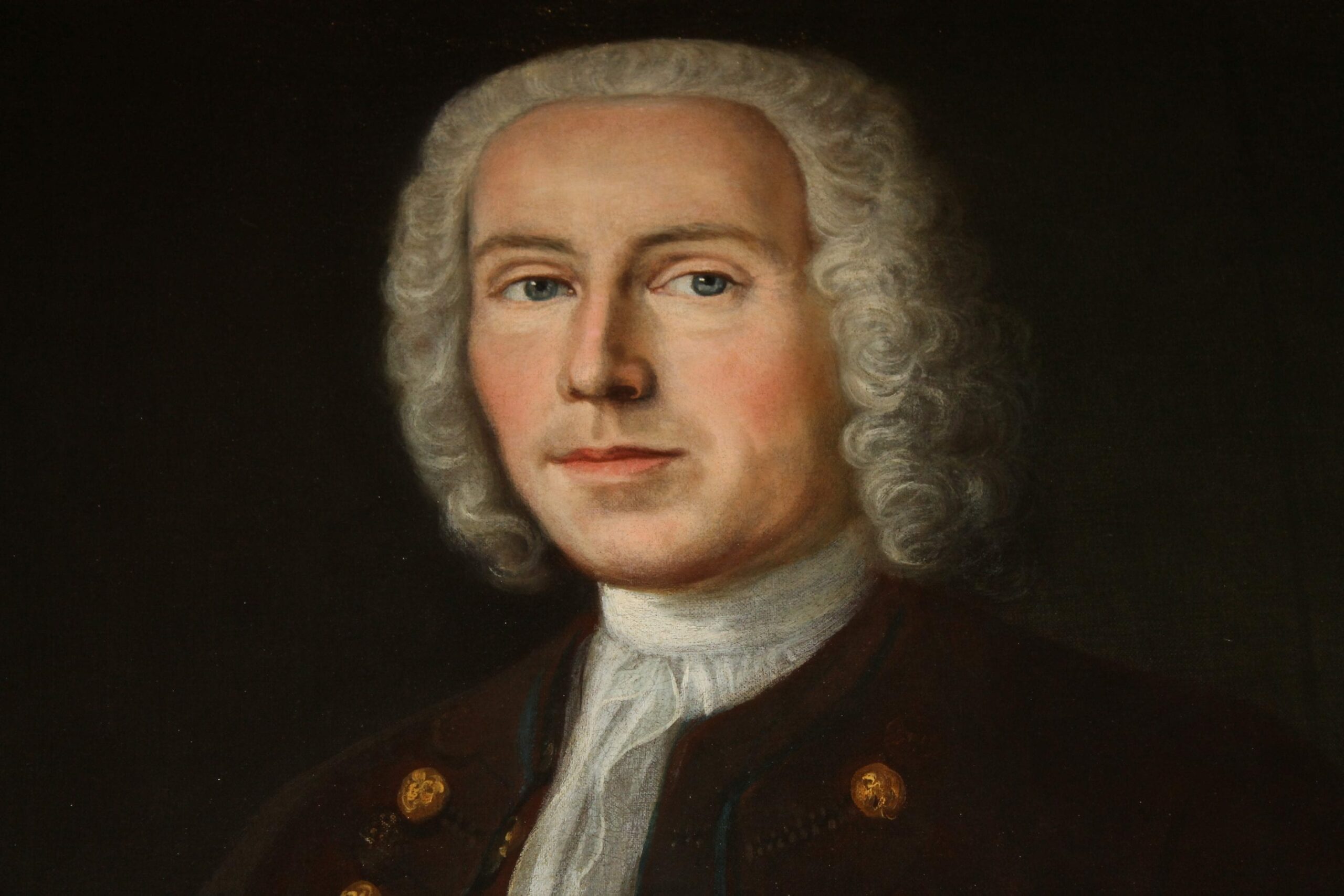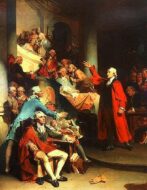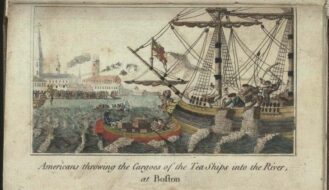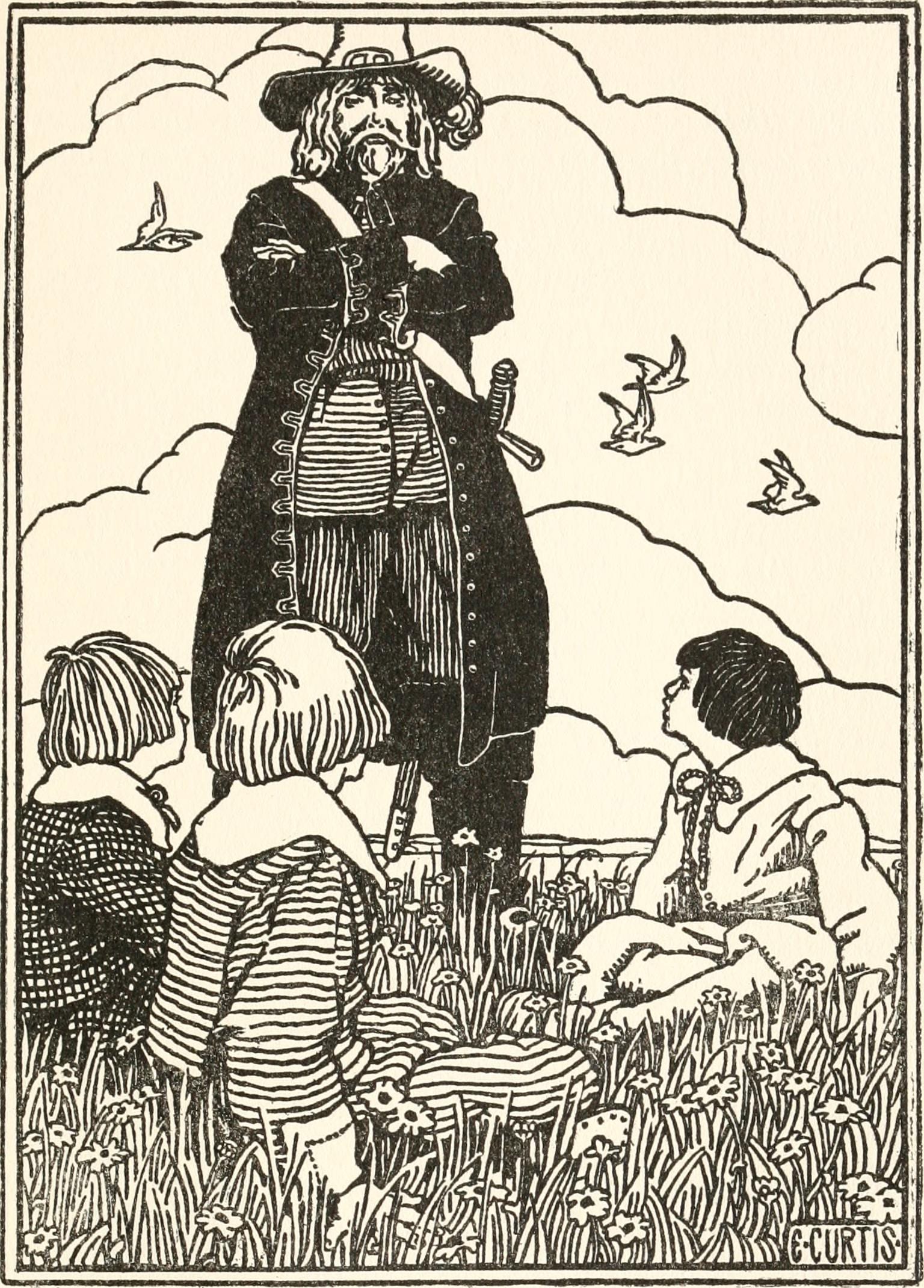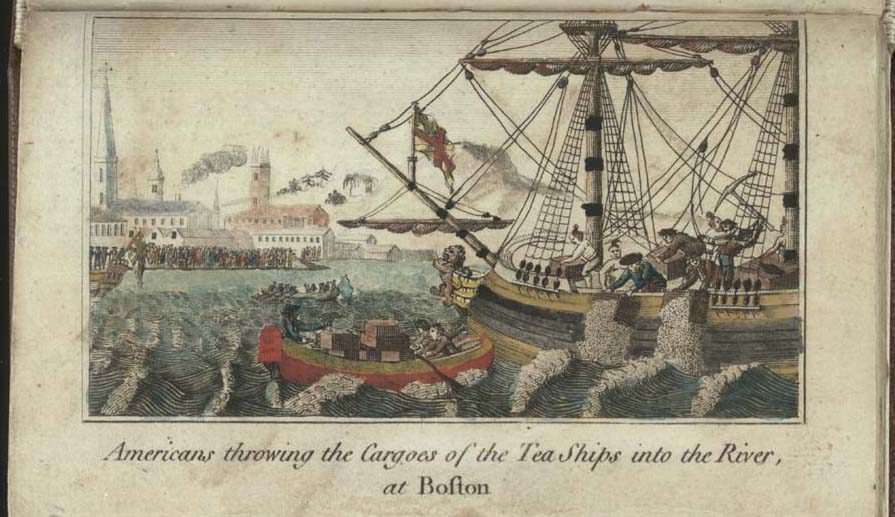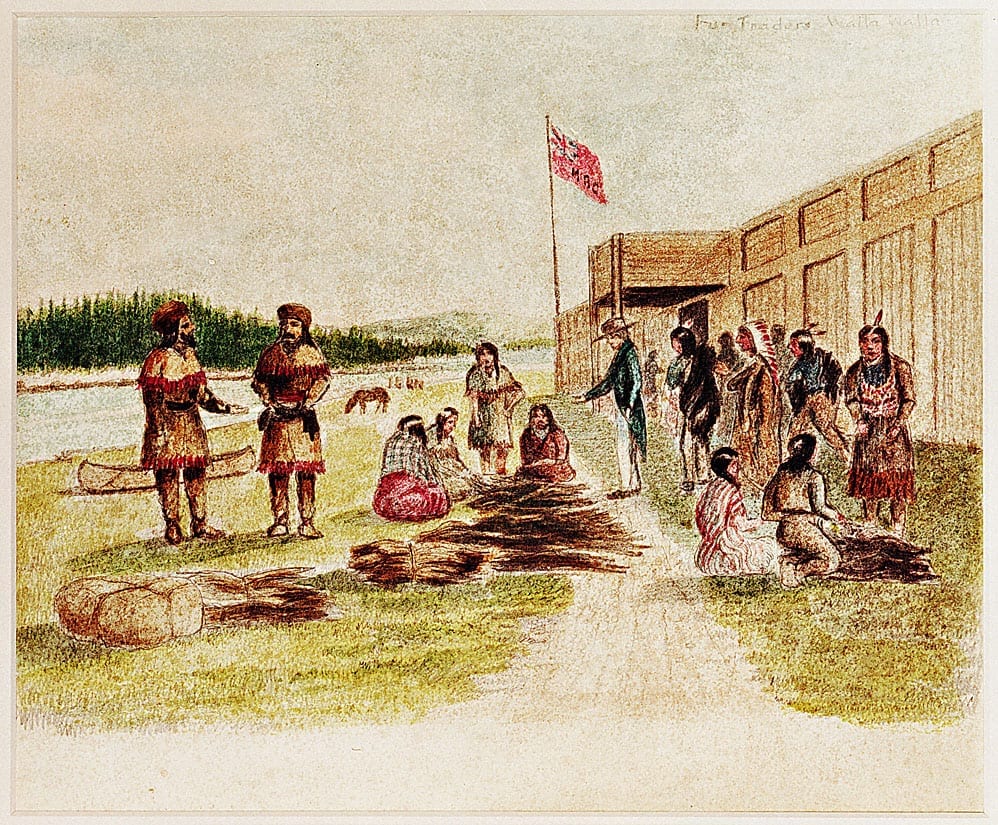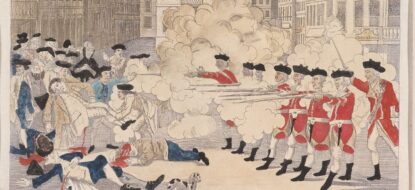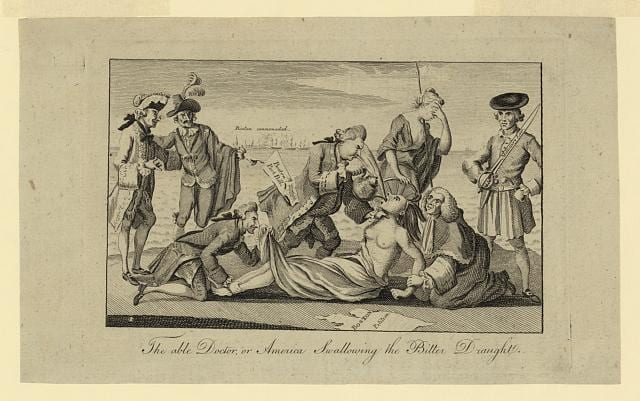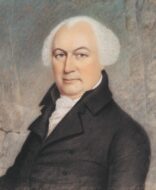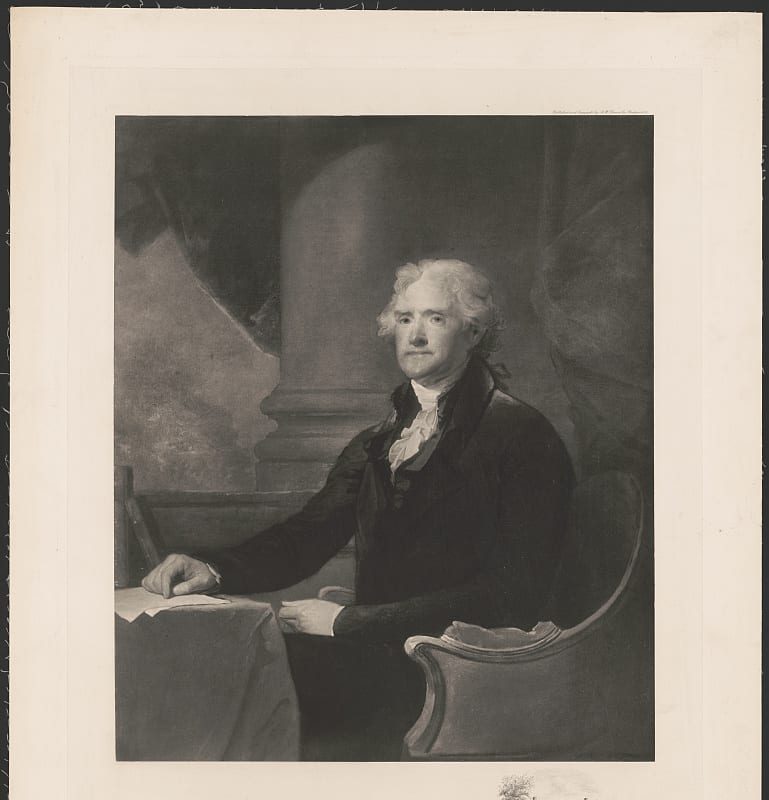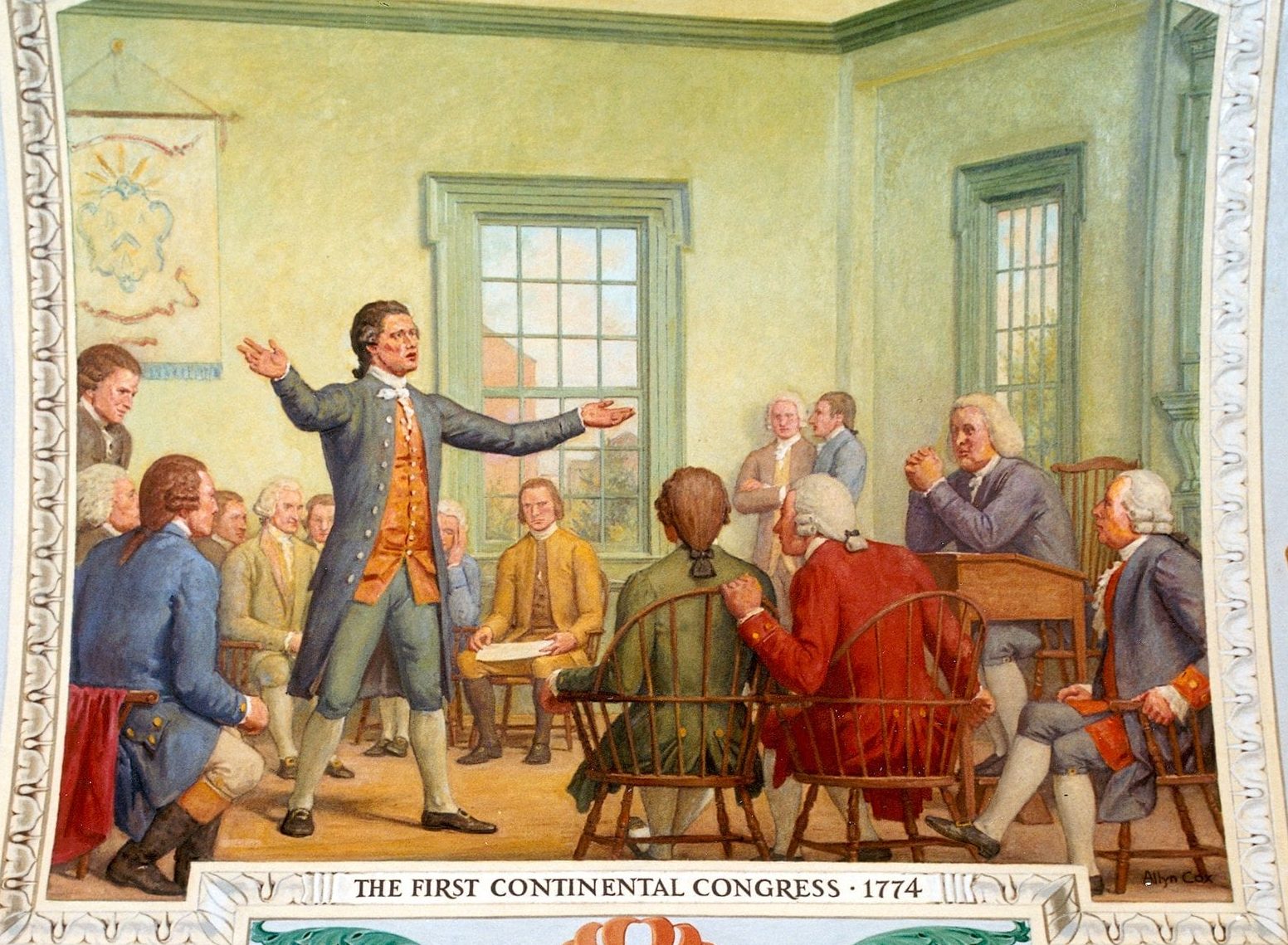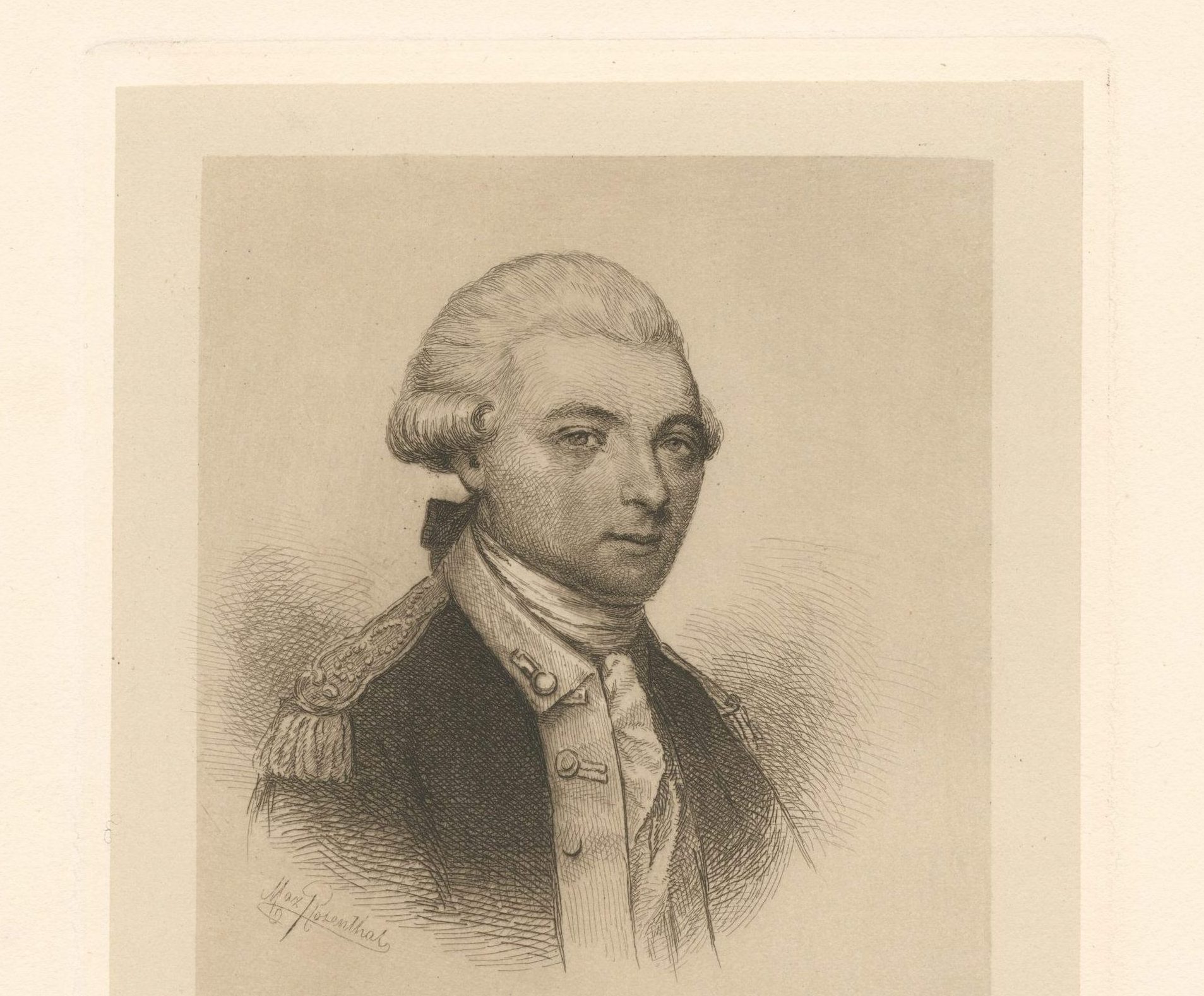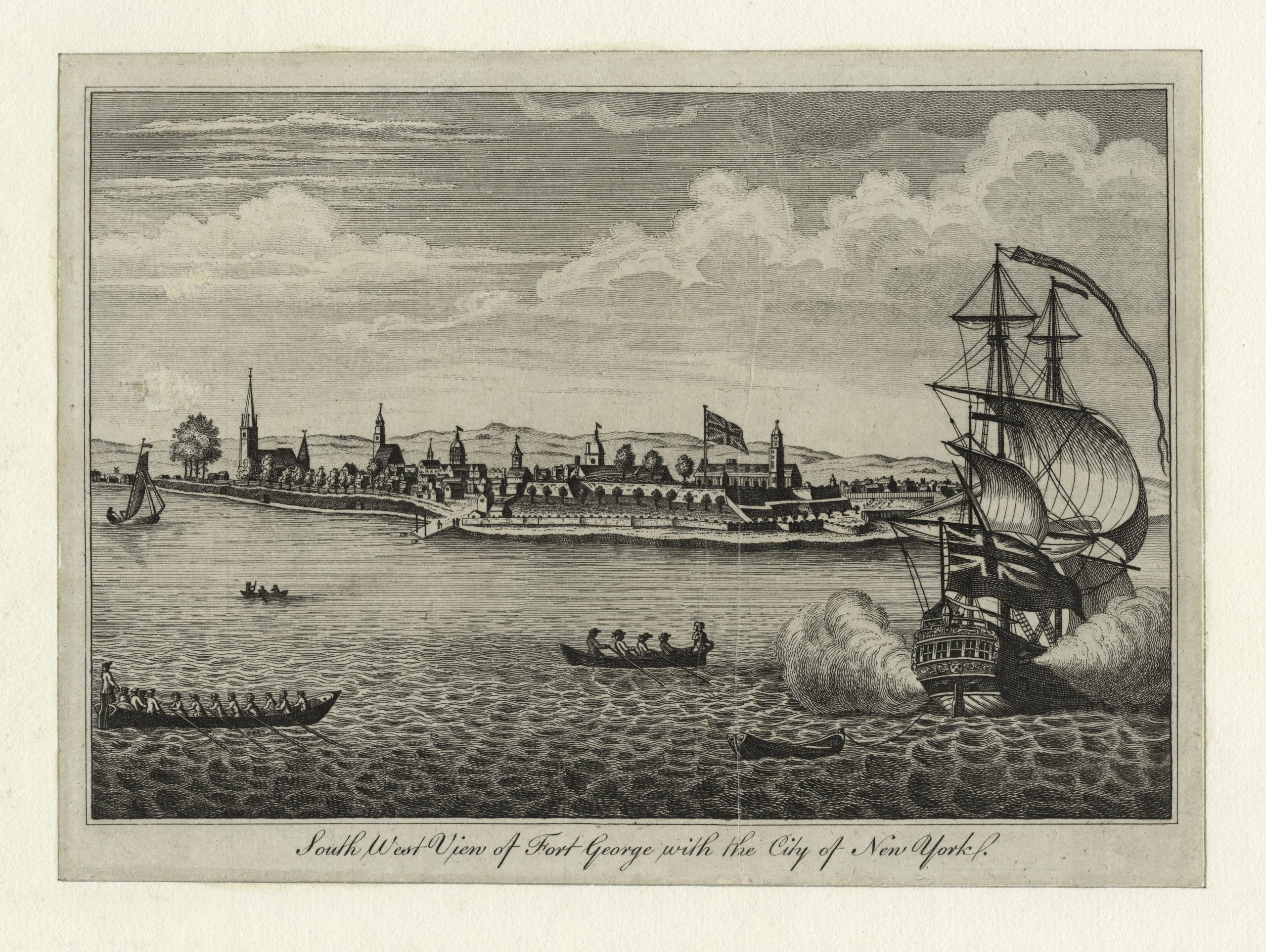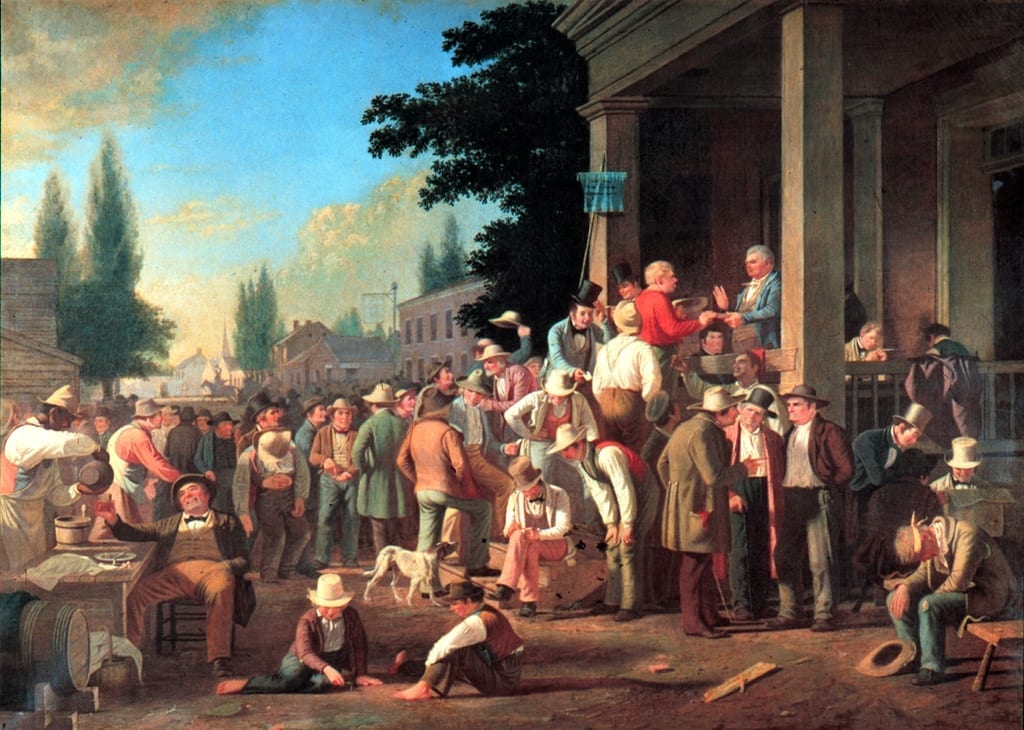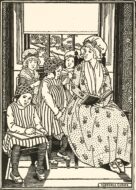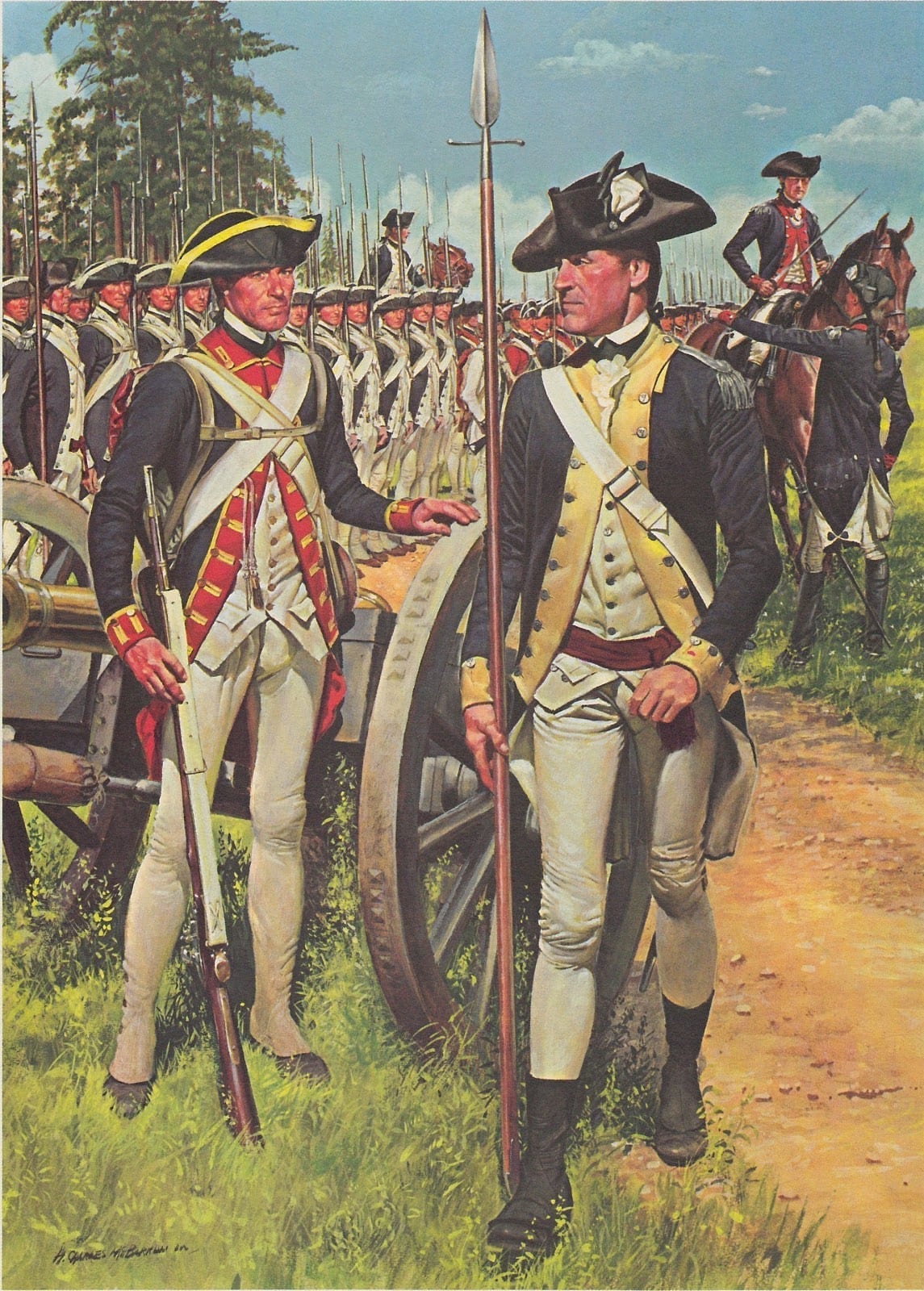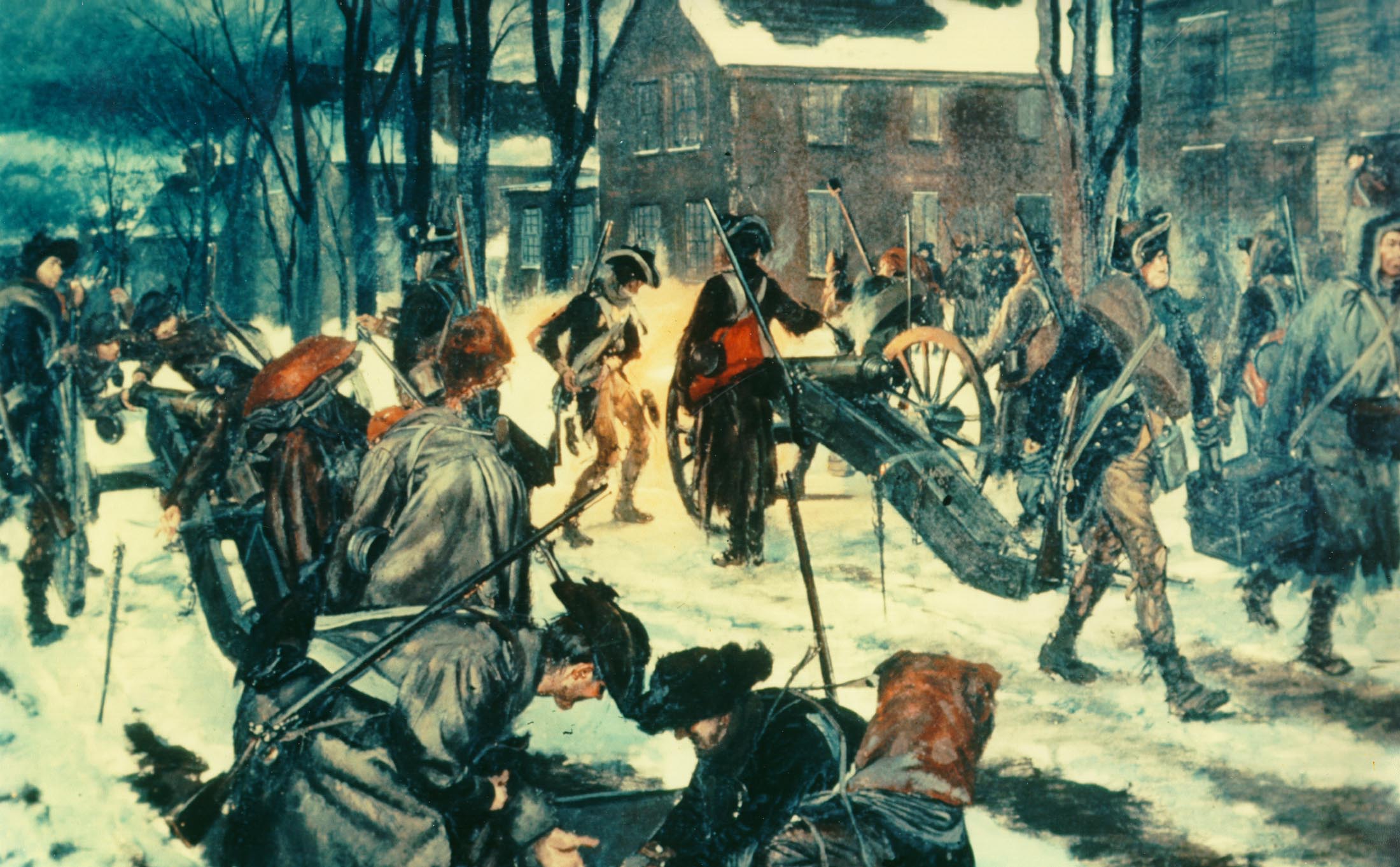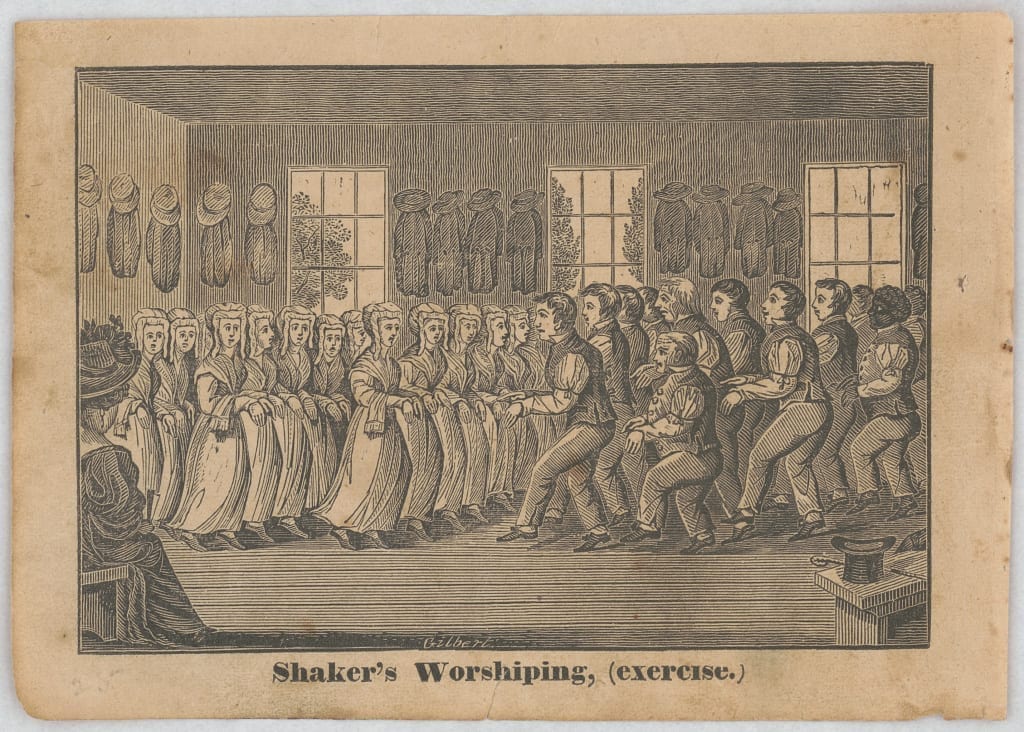
No study questions
No related resources
Introduction
When they settled in North America, the colonists brought their religious beliefs with them. In most instances, this was accomplished not only as a matter of social or cultural transmission, but by acts of legislative authority that provided public funding for certain religious denominations and not for others. Only Pennsylvania, Delaware, Rhode Island and (possibly) New Jersey failed to establish a particular denomination at some point during the colonial period: in the other colonies, religious establishments were the norm, and generally seen as for the institutional benefit of both church and state, as well as in accordance with the public good. Some colonies (such as Maryland and New York) combined religious establishments with limited toleration for religious dissenters. Yet even in Pennsylvania, although the law was ostensibly “tolerant” of religious variety and protective of freedom of conscience in principle, there remained an underlying presumption that individual religious faith in a broadly Protestant sense (sometimes extended to include Catholics and, more rarely, Jews) was a necessary component of civil order.
The difficulty of maintaining this latter assumption while at the same time holding to an expansive understanding of freedom of conscience became even more apparent when, following the Glorious Revolution, William and Mary signed the Toleration Act of 1689 granting freedom of worship to all Protestants regardless of sect throughout the British Empire. England and her Atlantic colonies soon became a haven for religious refugees from less-tolerant European regimes. After their arrival in places like New York, which already had large and religiously diverse non-English populations, the colonies began to seem “very much divided,” at least in the eyes of those used to greater religious conformity. Indeed, the vibrant but worrisome diversity of religion in the colonies was the impetus behind efforts to establish the Church of England more strongly as a means of asserting royal authority and creating greater political as well as cultural unity.
As scholar and statesman Elisha Williams’ tract, The Essential Rights and Liberties of Protestants, makes clear, however, for many colonists, religious freedom was seen as a natural and inalienable right, one that they would increasingly associate with other political rights worth fighting for – with words when possible, and weapons when necessary – as the century wore on.
John Miller, “New Yorke Considered and Improved” (1695), ed. Victor Hugo Paltsits and Paul Royster. Electronic Texts in American Studies 17, pp. 40,55-56, 64-67, 74- 75.
The number of the inhabitants in this province are about 3,000 families, whereof almost one half are naturally Dutch, a great part English and the rest French. Which how they are seated and what number of families of each nation what churches, meeting houses, ministers or pretended ministers there are in each County may be best discerned by the table here inserted. As to their Religion they are very much divided; few of them intelligent and sincere but the most part ignorant and conceited, fickle & regardless [sic]. . . .
| Counties | Churches | Ministers | Familys |
| New York | Chapel in ye fort
Dutch Calvinist Dutch Lutheran French Jews Synagogue Harlem |
Dr Selinus
Dr Perot Saul Brown Dr Selinus |
90
450 30 200 20 25 English 40 Dissentrs. |
| Richmond | A meeting house | Dr Bonrepos | English 40
Dutch 44 French 36 |
| Kings | Flatbush
Utrecht Brookland |
Dr Varick died Aug:1694 & another sent for May 27 1695 | 300
or 400 chiefly Dutch |
| Queens | Jamaica All
Hamsted Meeting Newtown Houses |
Mr Philips Without
Mr Vesy any Mr Mot Orders |
300 Or
400 English most Dissentrs. And Some Dutch |
| Suffolk | 8 or 9 meeting-houses almost one at every Towne | 7 Ministers Dissrs. Presb. Or Indep. One lately gone to Scotland | 500 or
600 English & Dissentrs for the most part |
| West-Chester | A Meeting-house at West Chester | A Young man coming to Settle there without Orders | 200 or
300 English&Dissrs. Few Dutch |
| Orange | 20
English & Dutch |
||
| Dutchess | 30
English & Dutch |
||
| Ulster | Dutch Calvenist at Kingstone for five or six towns | A Minister to come his bookes brought but he miss’d his passage | 300
Dutch mostly Some English & French |
| Albany | Dutch Calvenist
Dutch Lutheran Scanecthade [Schenectady] Kinderhoeck |
Dr. Dellius
A dutch Minr Sent for |
400 or
500 Dutch all Calvenists except 12 or 14 Lutherans |
Come we now to consider those things which I have said to be either wanting or obstructive to the happiness of New York, and here I shall not speak of every slight or trivial matter but only those of more considerable importance, which I count to be six: 1, the wickedness and irreligion of the inhabitants; 2, want of Ministers; 3, difference of opinions in religion; 4, a civil dissension; 5, the heathenism of the Indians; and 6, the neighborhood of Canada. . . .
The 1st. is the wickedness & irreligion of the inhabitants which abounds in all parts of the province and appears in so many shapes constituting so many sorts of sin that I can scarce tell which to begin withal. But as a great reason of and inlet to the rest I shall first mention the great negligence of divine things that is generally found in most people of what sect or party soever they pretend to be. Their eternal interests are their least concern, and as if salvation were not a matter of moment when they have opportunities of serving God, they care not for making use thereof or if they go to church, ‘tis but too often out of curiosity and to find out faults in him that preaches, rather than to hear their own – or what is yet worse, to slight and deride where they should be serious. If they have none of those opportunities they are well contented and regard it little . . . for though at first they will pretend to have a great regard for God’s ordinances and a high esteem for the Ministry whether real or pretended a little time will plainly evidence that they were more pleased at the novelty than truly affected with the benefit. . . . In a soil so rank as this no marvel if the Evil one find a ready entertainment for the seed he is minded to cast in and from a people so inconstant and regardless of Heaven and holy things[!] No wonder if God withdraw his grace and give them up a prey to those temptations which they so industriously seek to embrace. Hence is it, therefore, that their natural corruption without check or hindrance is by frequent acts improved into habits most evil in the practice and difficult in the correction. . . .
Now in New York there are either:
1. No ministers at all, that is of the settled and established religion of the nation. And of such there is not oftentimes one in the whole province nor at any time except the chaplain to his Majesty’s forces in N. York that does discharge or pretend to discharge the duty of a minister and he being but one cannot do it everywhere nay, but in very few places. . . . It happens also that he is often changed, which is not without its inconveniences but proves very prejudicial to religion in many cases as is easy to instance. Besides, while he does his duty among them he shall experience their gratitude but very little, and be sure to meet with a great many discouragements except instead of reprehending and correcting he will connive at and soothe people in their sinful courses.
2. Or secondly, if there by any ministers, they are such as only call themselves so and are but pretended Ministers. Many of them have no orders at all but set up for themselves of their own head and authority. Or if they have orders, are Presbyterians, Independents, etc. Now all these have no other encouragement for the pains they pretend to take than the voluntary contributions of the people or at best a salary by agreement and subscription which yet they shall not enjoy, except they take more care to please the humors and delight the fancies of their hearers than to preach up true religion and a Christian life. Hence it comes to pass that the people live very loosely and they themselves very poorly at best, if they are not forced for very necessity and by the malice of some of their hearers to forsake their congregations besides being of different persuasions and striving to settle such sentiments as they indulge themselves in, in the hearts of those who are under their ministry they do more harm in distracting and dividing ye people than good in the amending their lives and conversations.
3. Or thirdly if there be or have been any ministers and those ministers, they have been here and are in other Provinces many of them such as being of a vicious life and conversation have played so many vile pranks and shown such an ill light as has been very prejudicial to religion in general & the Church of England in particular, or else they have been such as tho’ sober yet have been very young, and so instead of doing good have been easily drawn into the commission of evil and become as scandalous as those last mentioned. . . .
The Province of New York being peopled by several nations, there are manifold and different opinions of religion among them as to which though there are but very few of any sect who are either real or intelligent yet several of the partisans of each sort have every one such a desire of being uppermost and increasing the number of their own party that they not only thereby make themselves unhappy by destroying true piety and setting up instead thereof a fond heat and blind zeal for they know not what, but also industriously obstruct the settlement of the established religion of the nation which only can make them happy and have hitherto either by their craft & cunning or their money prospered in their designs and to do thus they have but too much pretense from the scandalous lives of some ministers the matter considered under the former head. . . .
The great, most proper, and as I conceive effectual means to remedy and prevent all the disorders I have already mentioned and promote the settlement & improvement of religion and unity both among the English subjects that are already Christians and the Indians supposed to be made so is that his Majesty will graciously please to send over a Bishop to the Province of New York who, if duly qualified, empowered and settled, may with the assistance of a small force for the subduing of Canada by God’s grace and blessing be author of great happiness not only to New York in particular but to all the English plantations on that part of the continent of America in general. . . .

Conversation-based seminars for collegial PD, one-day and multi-day seminars, graduate credit seminars (MA degree), online and in-person.
